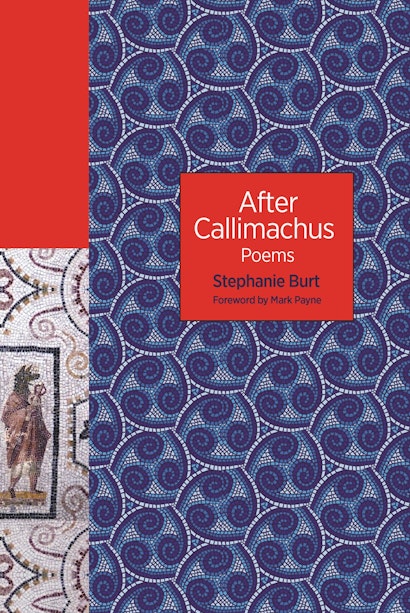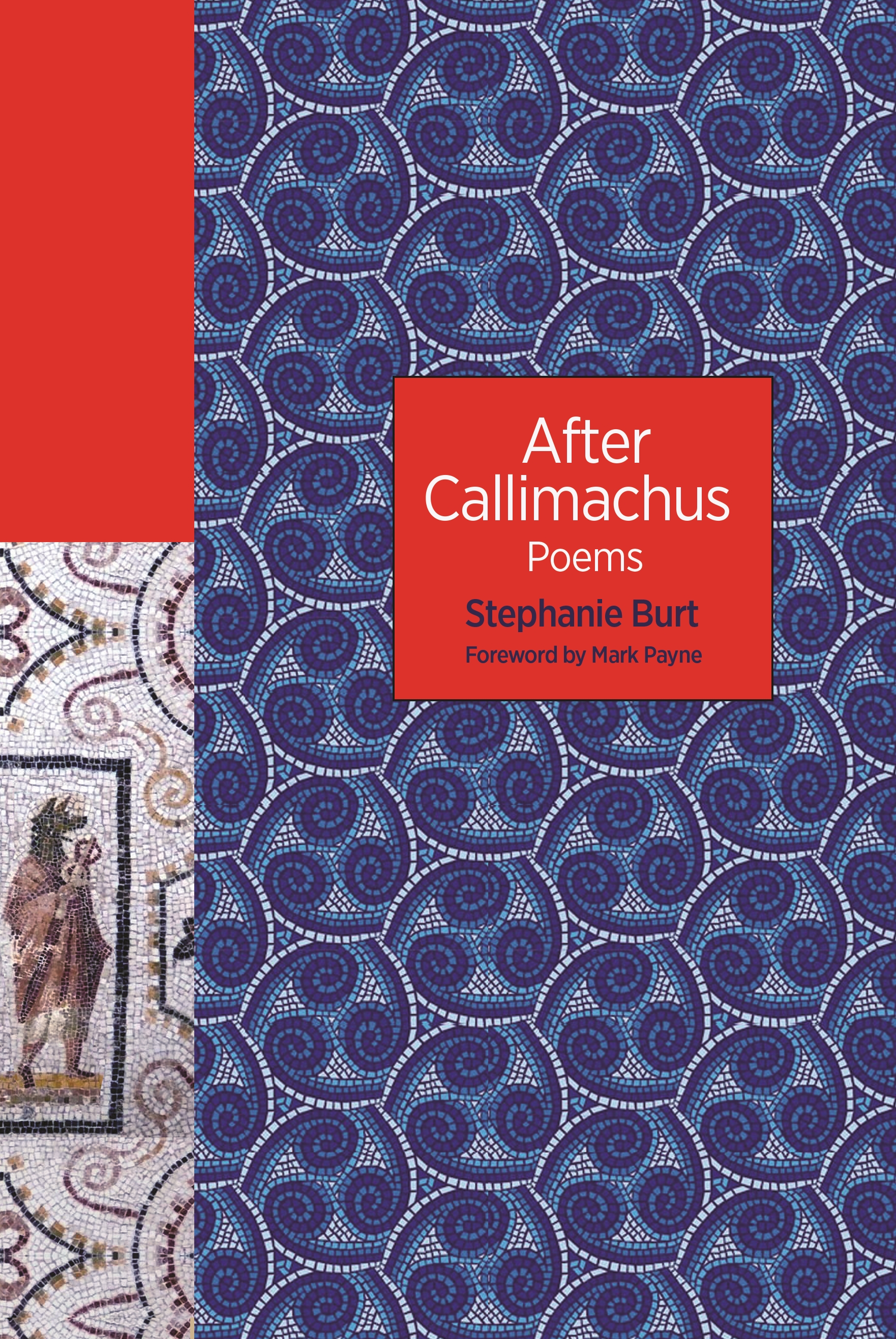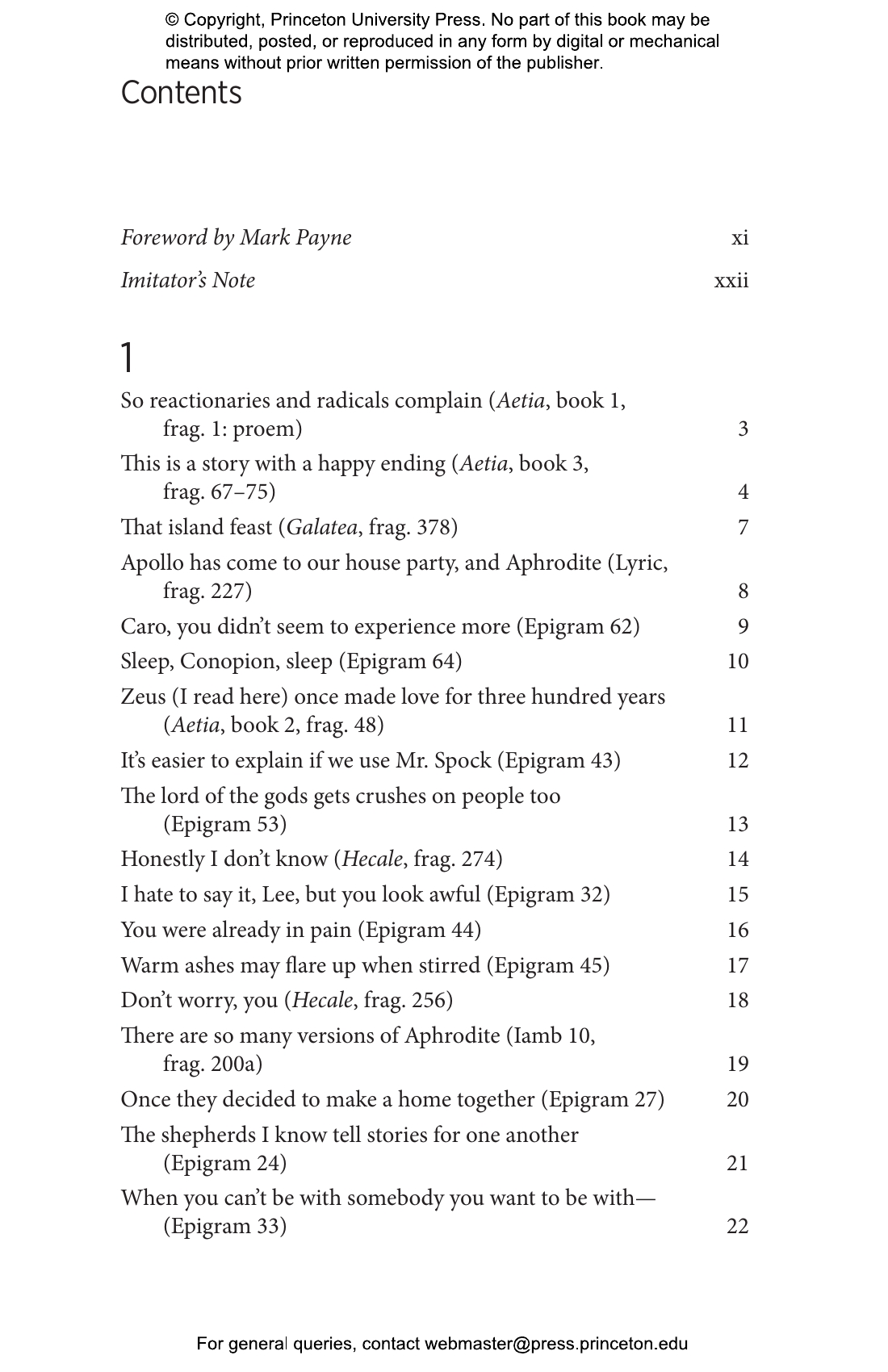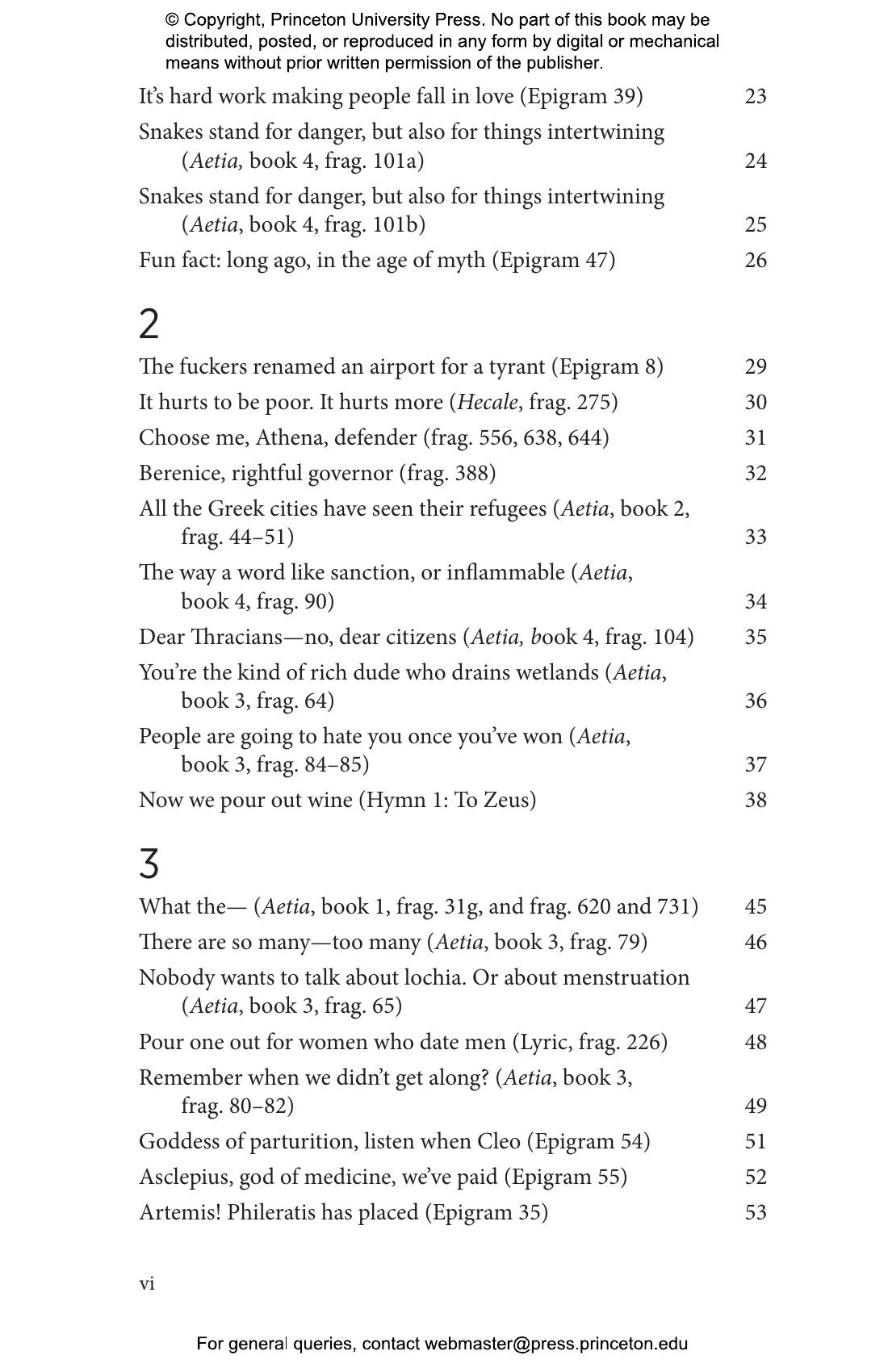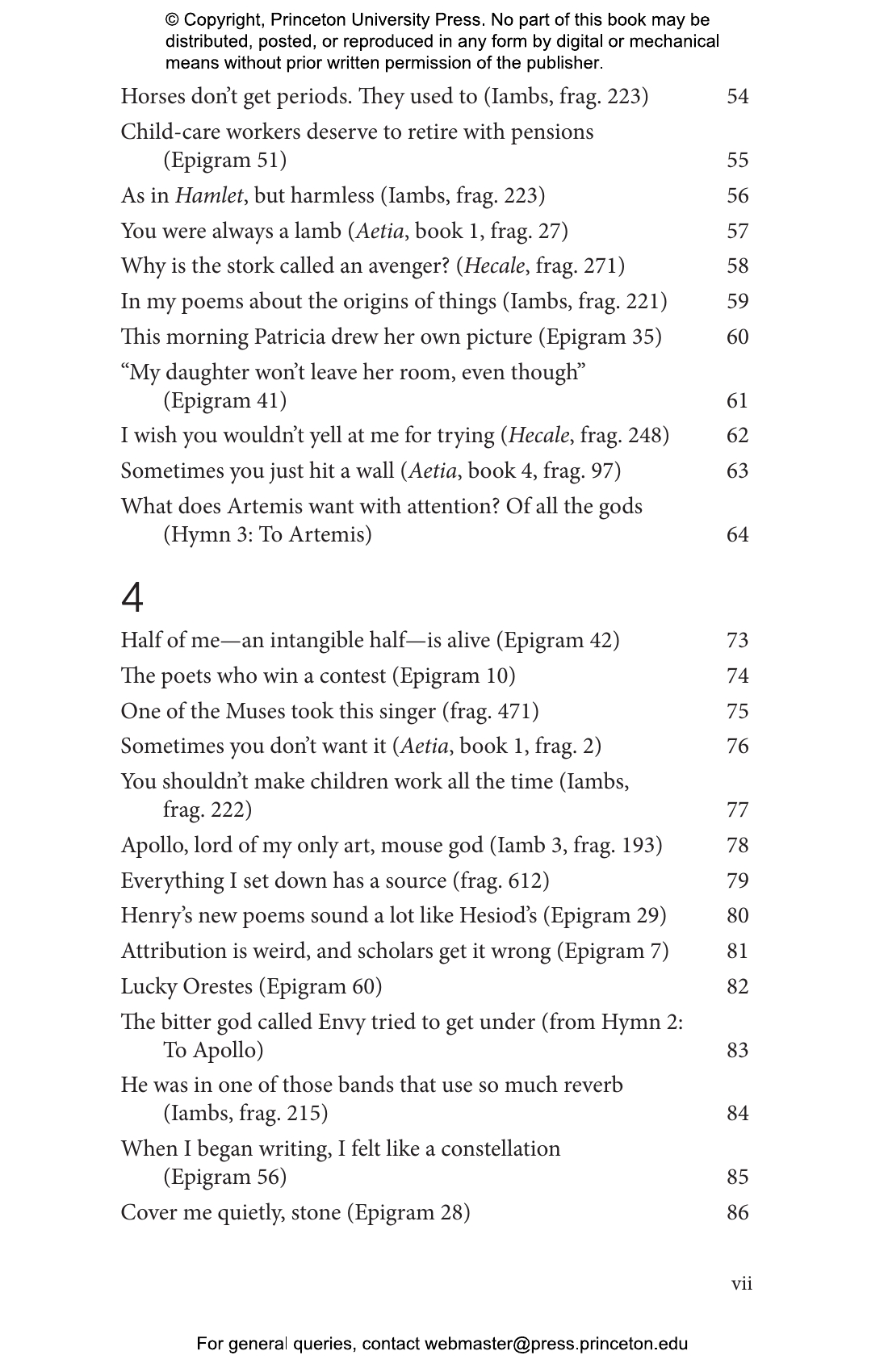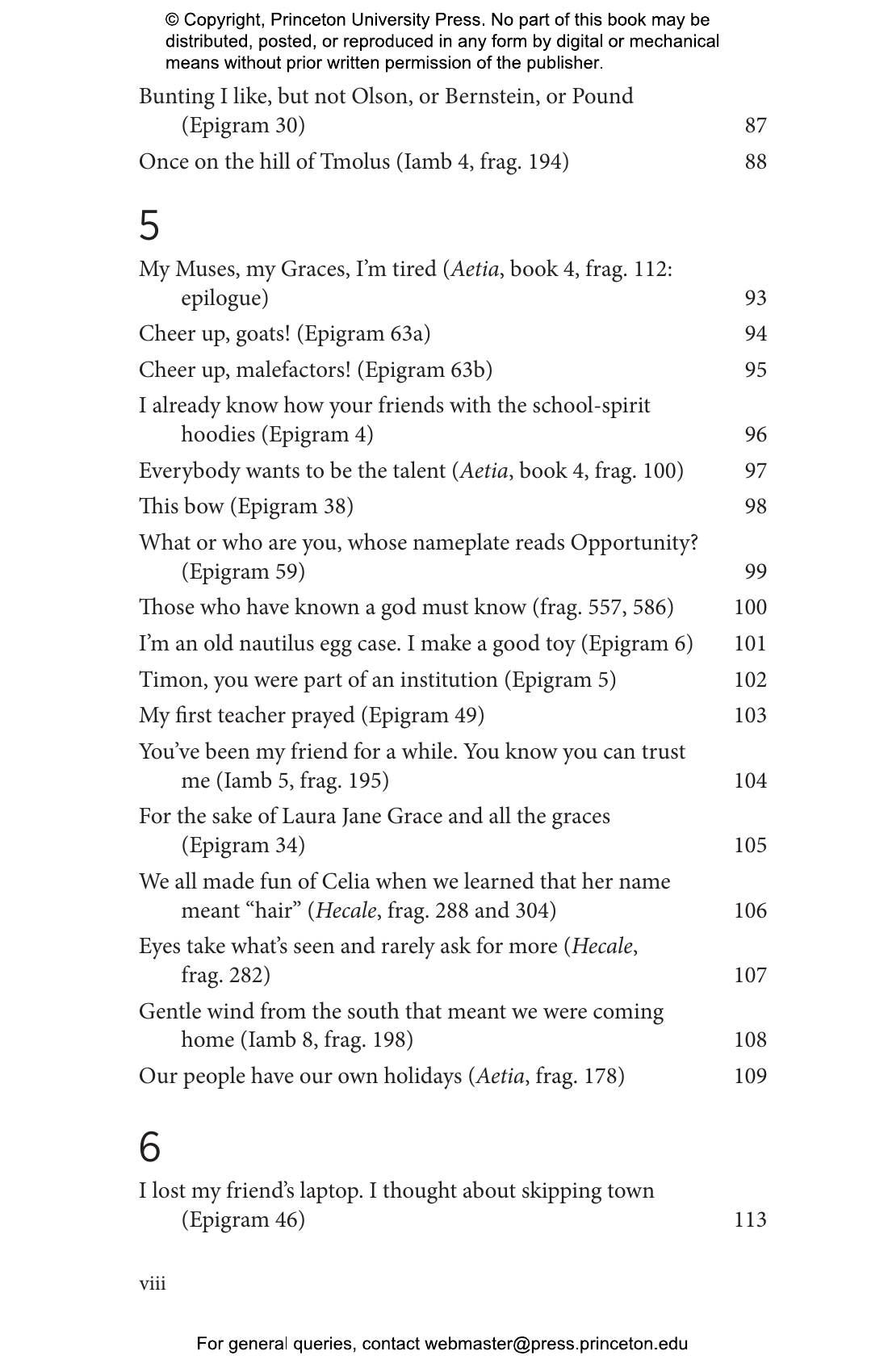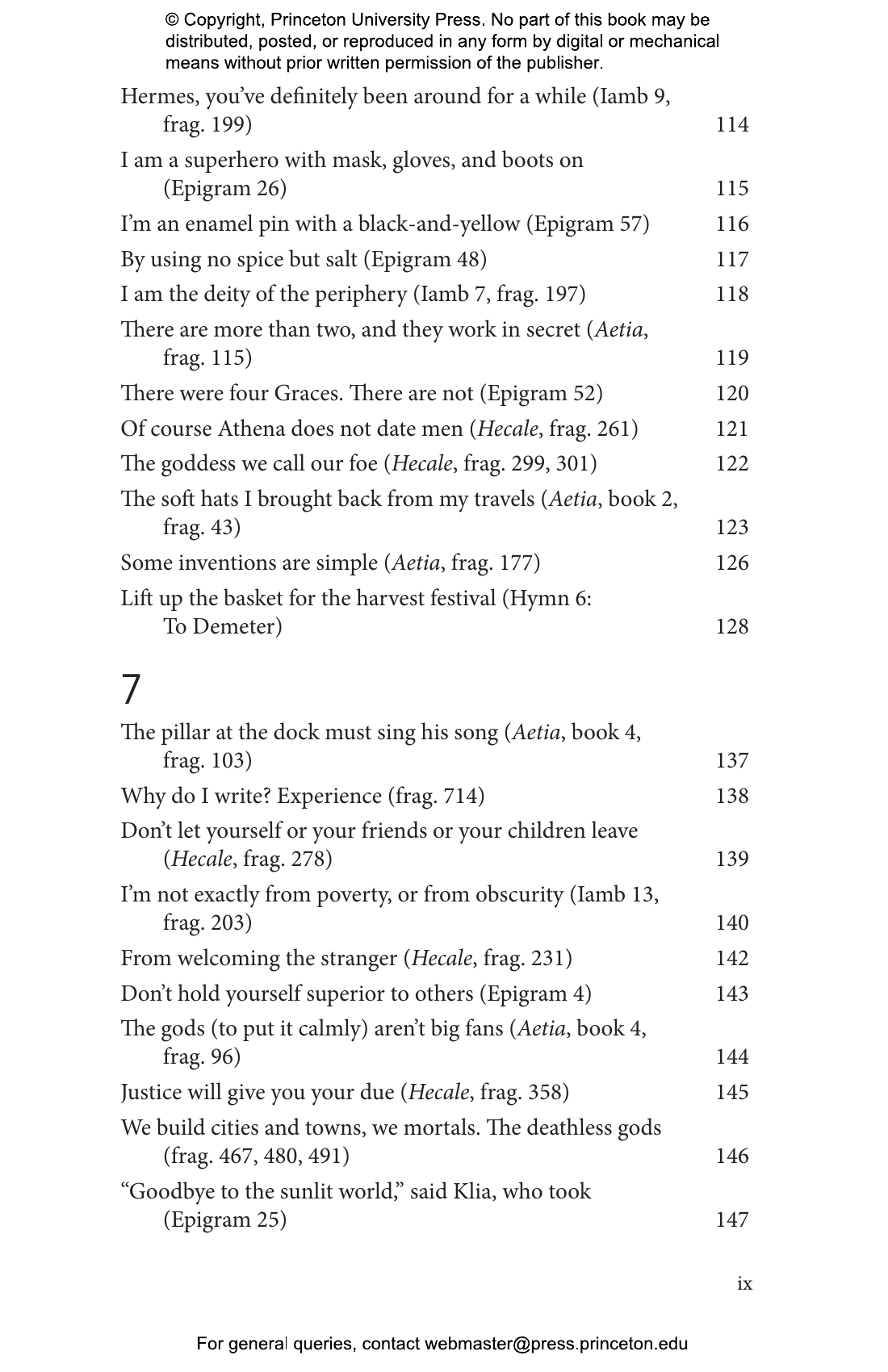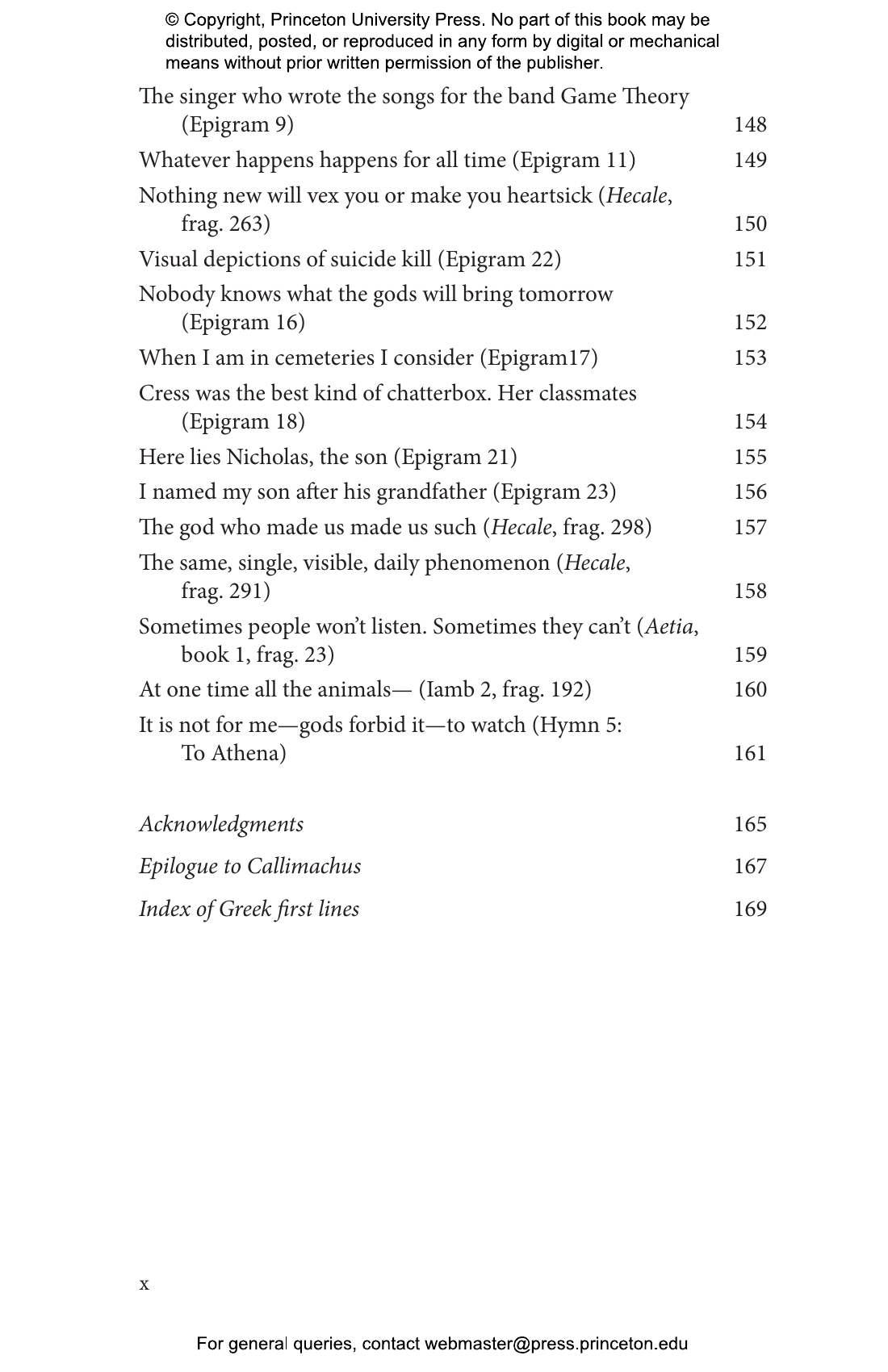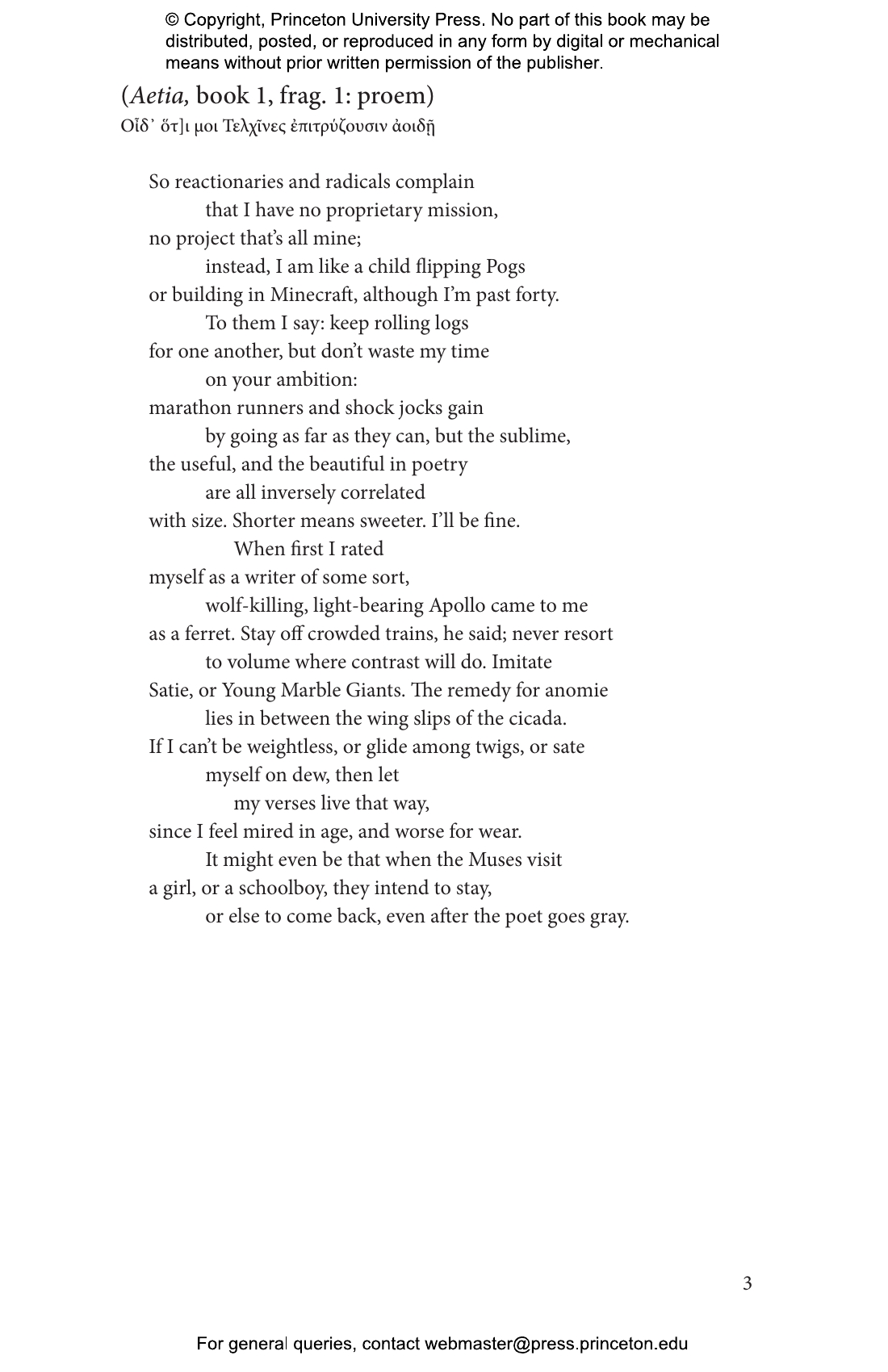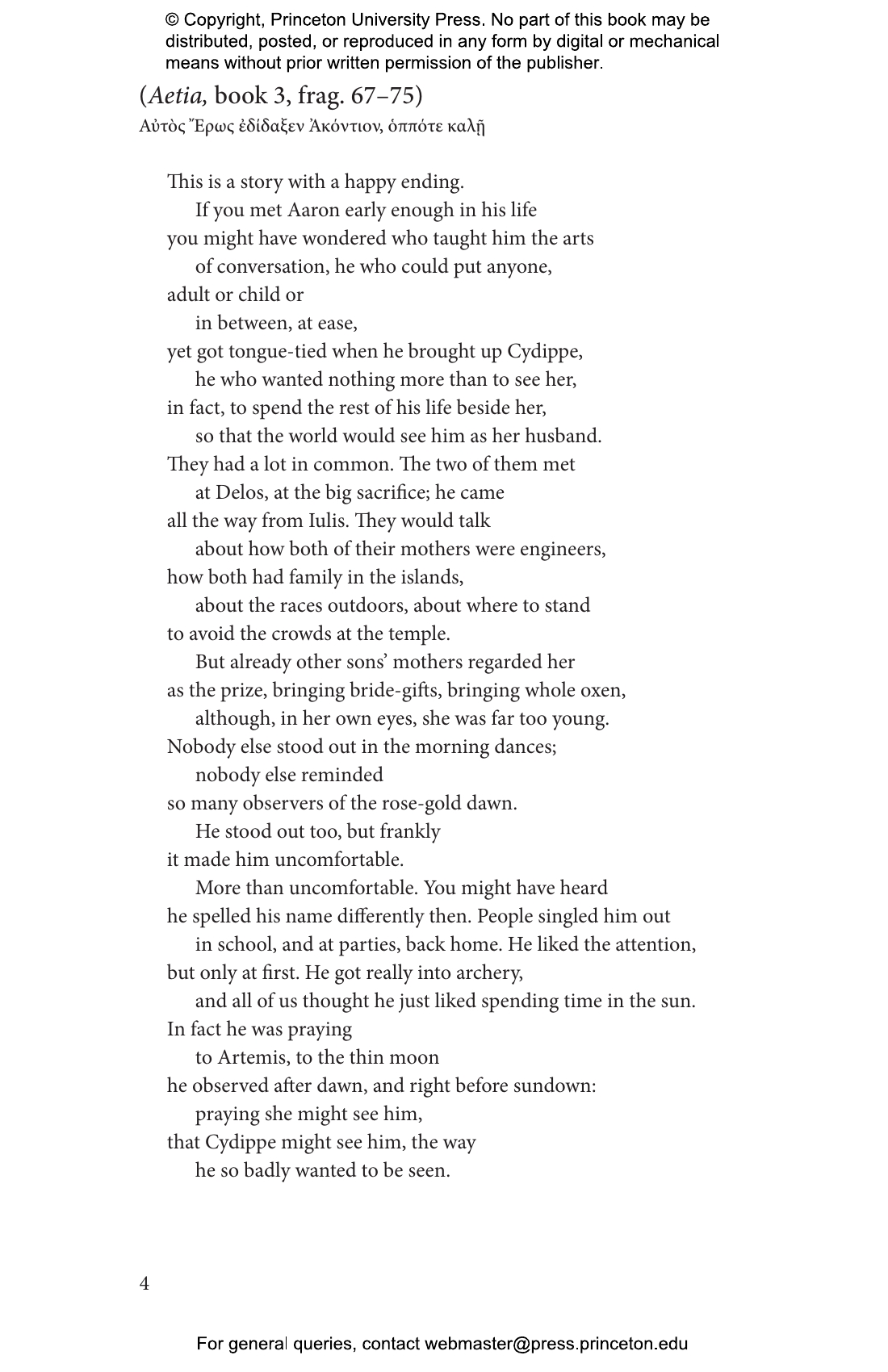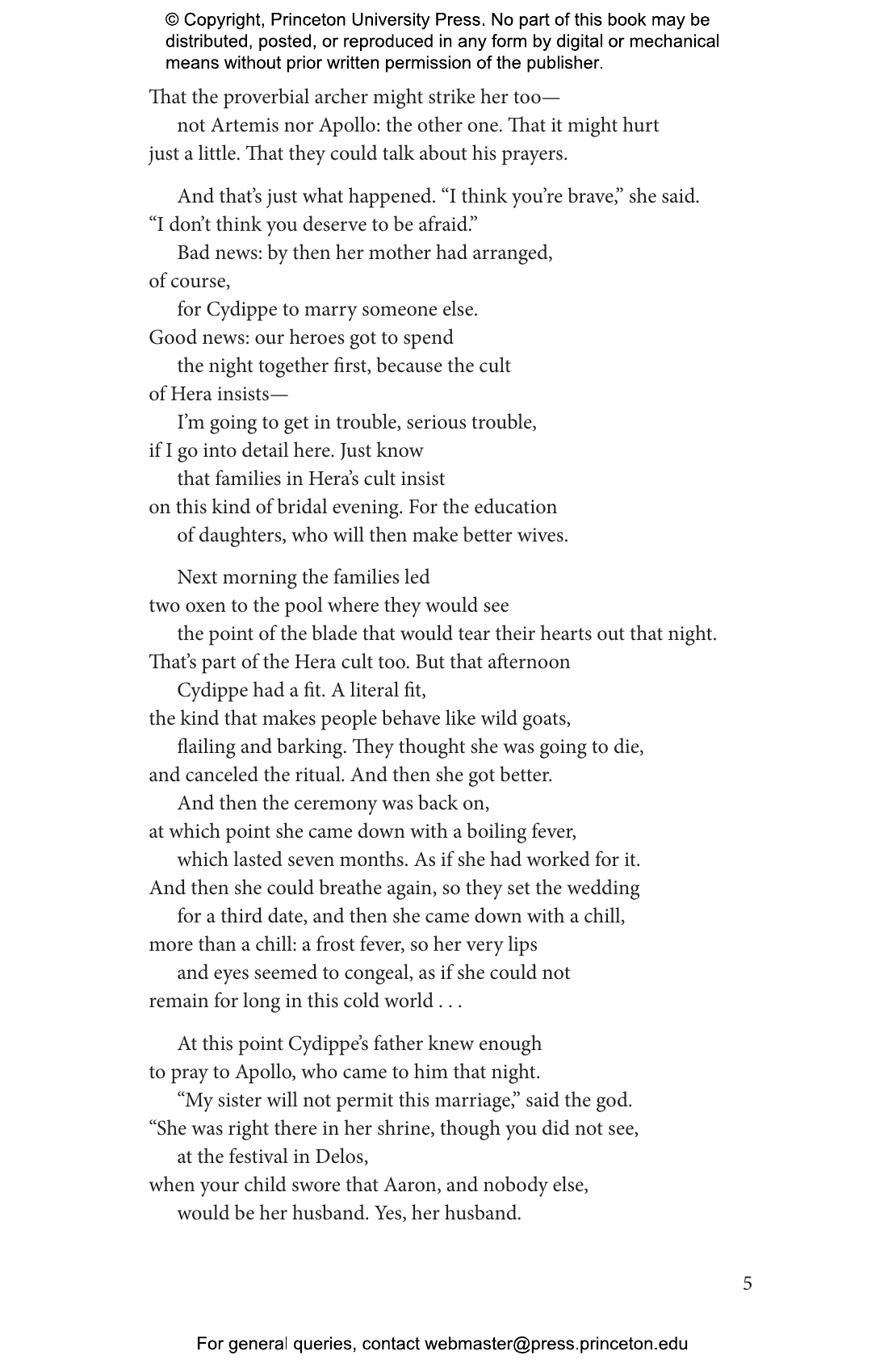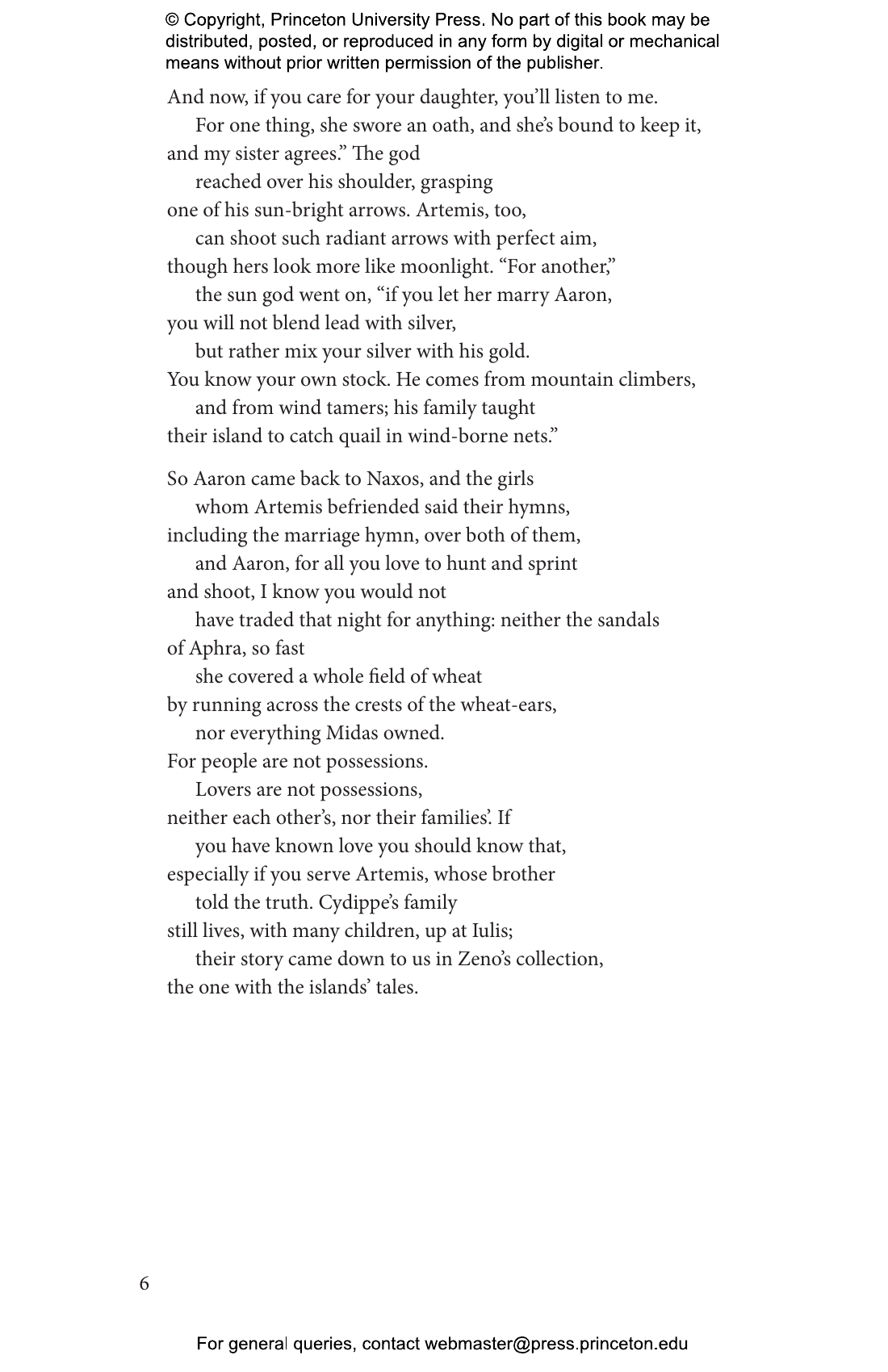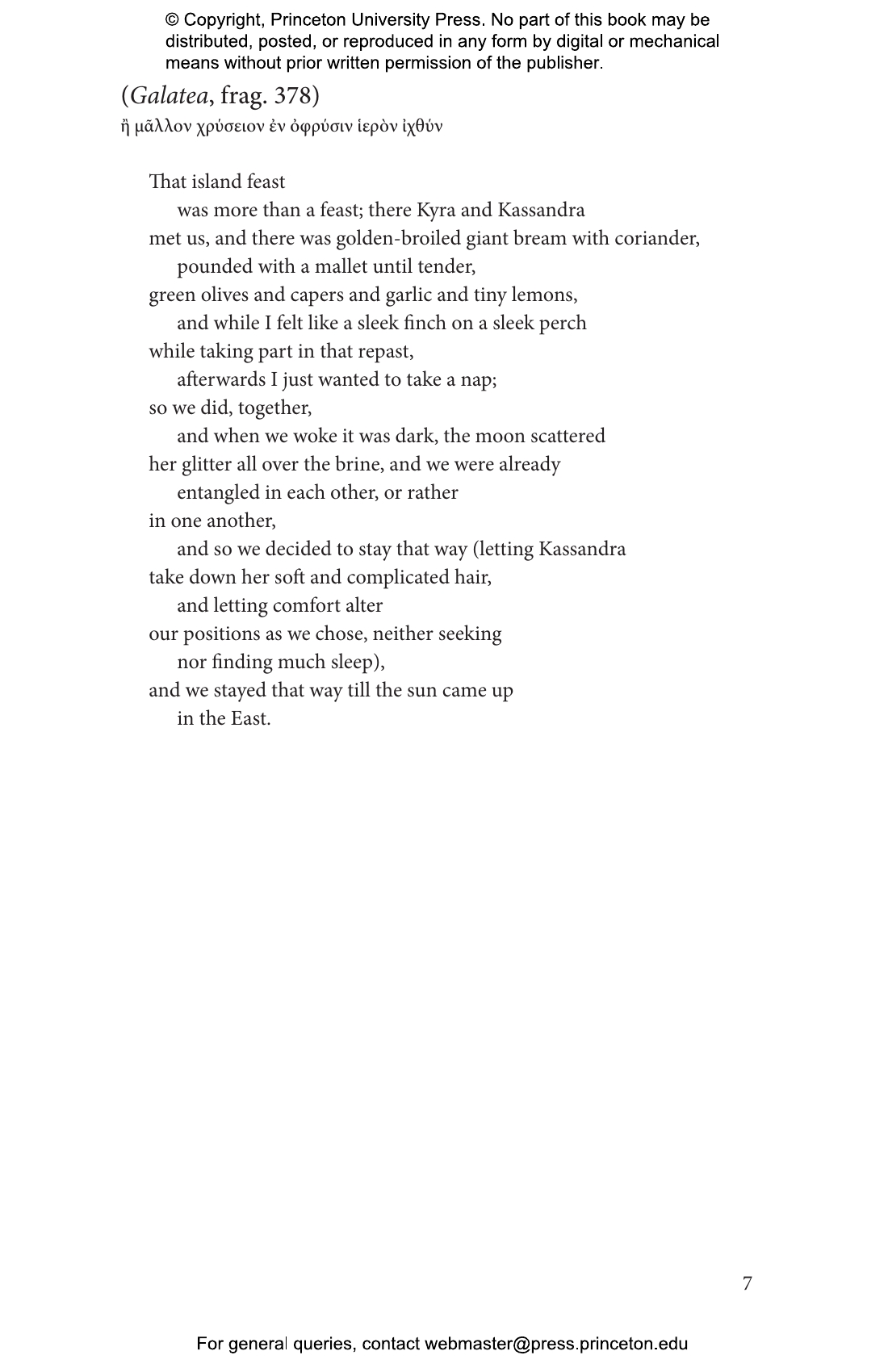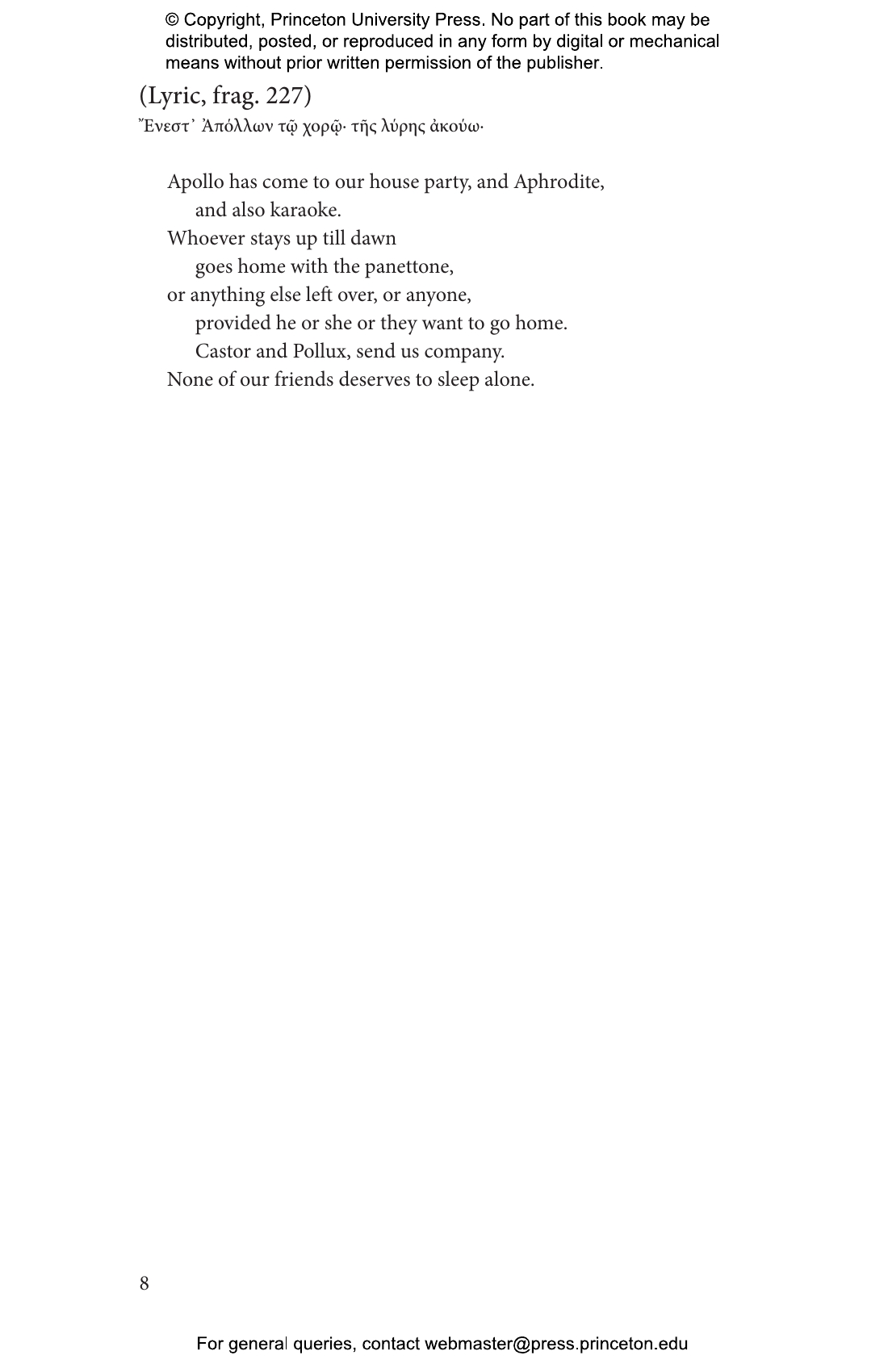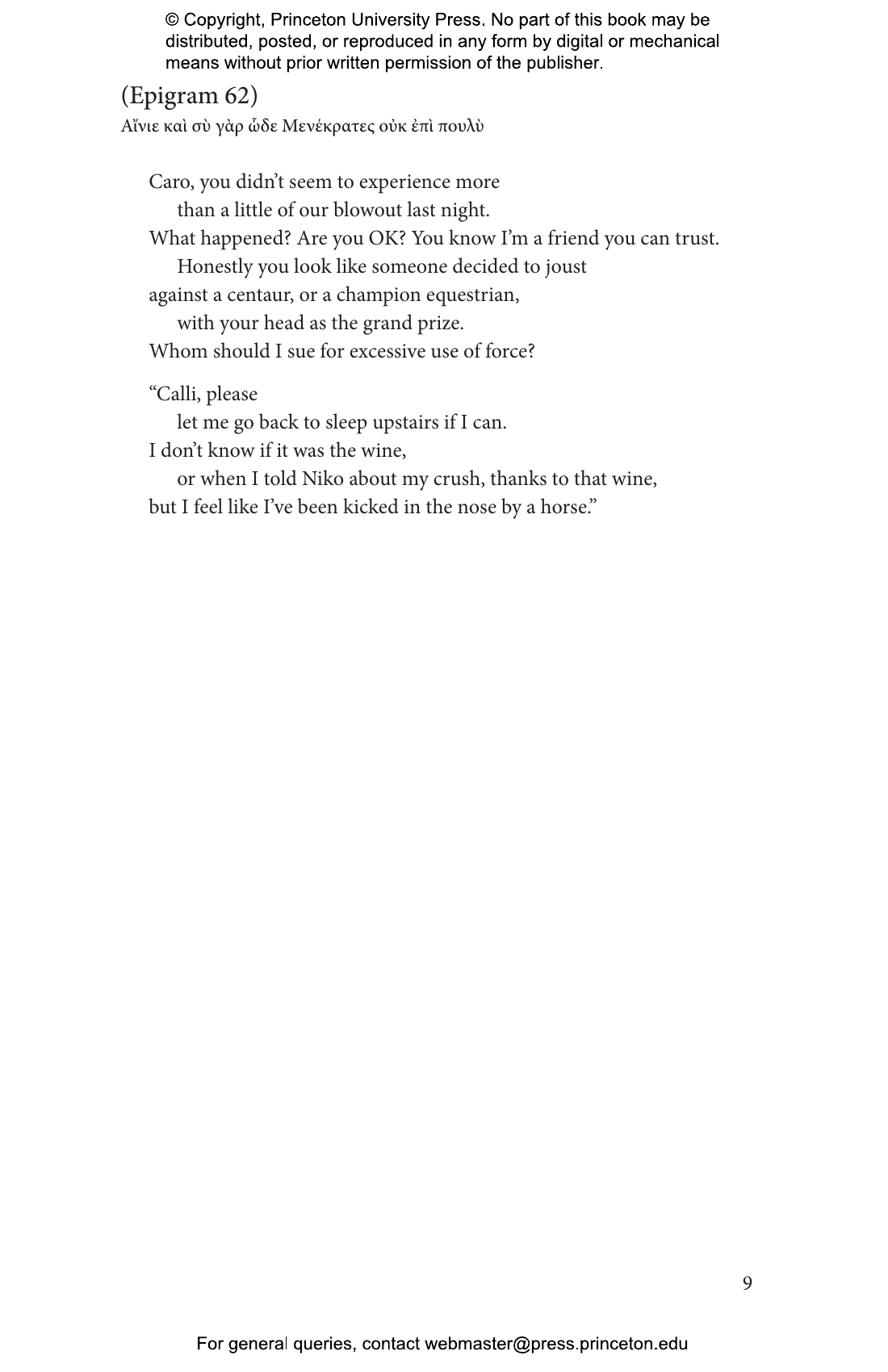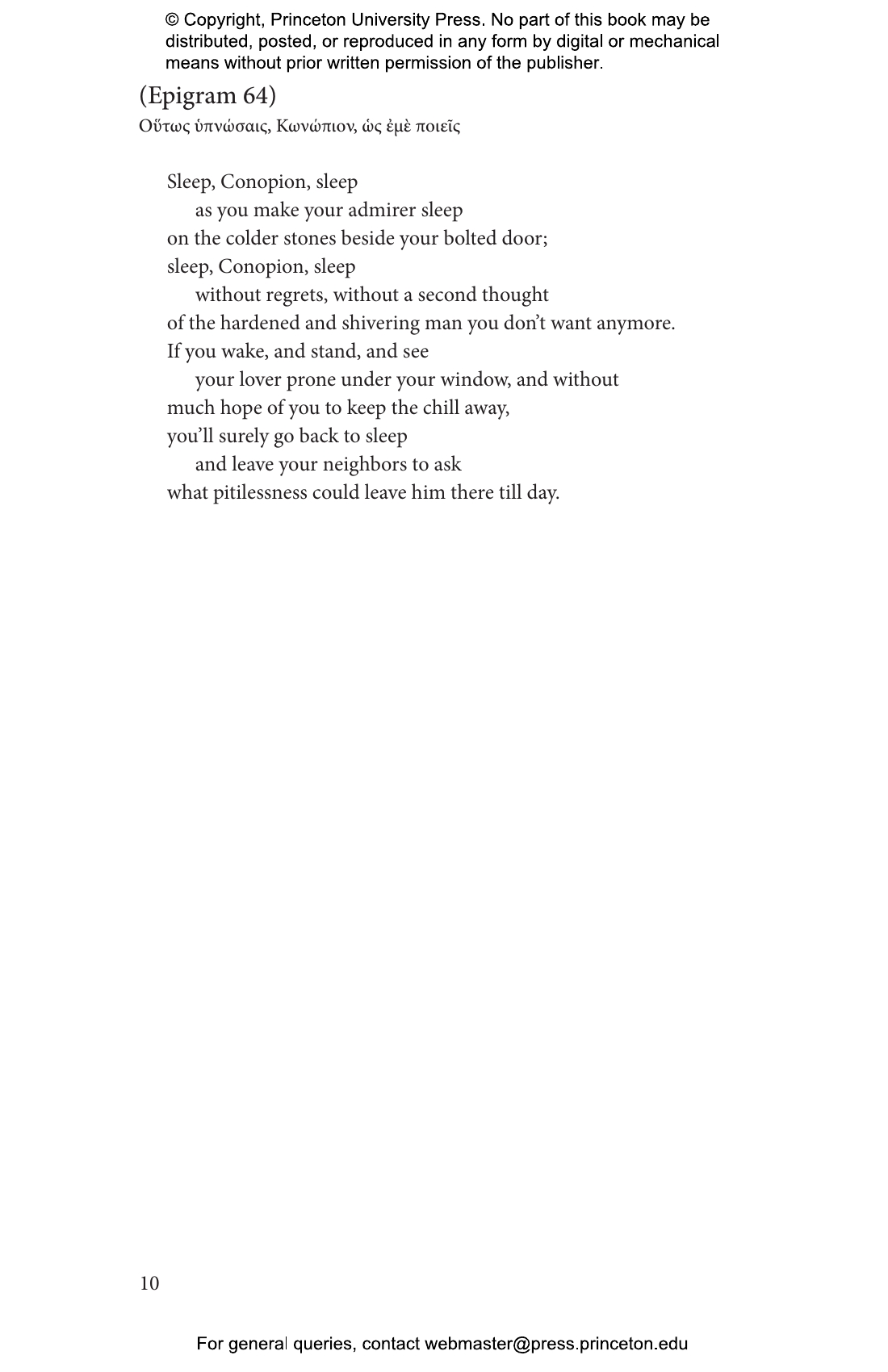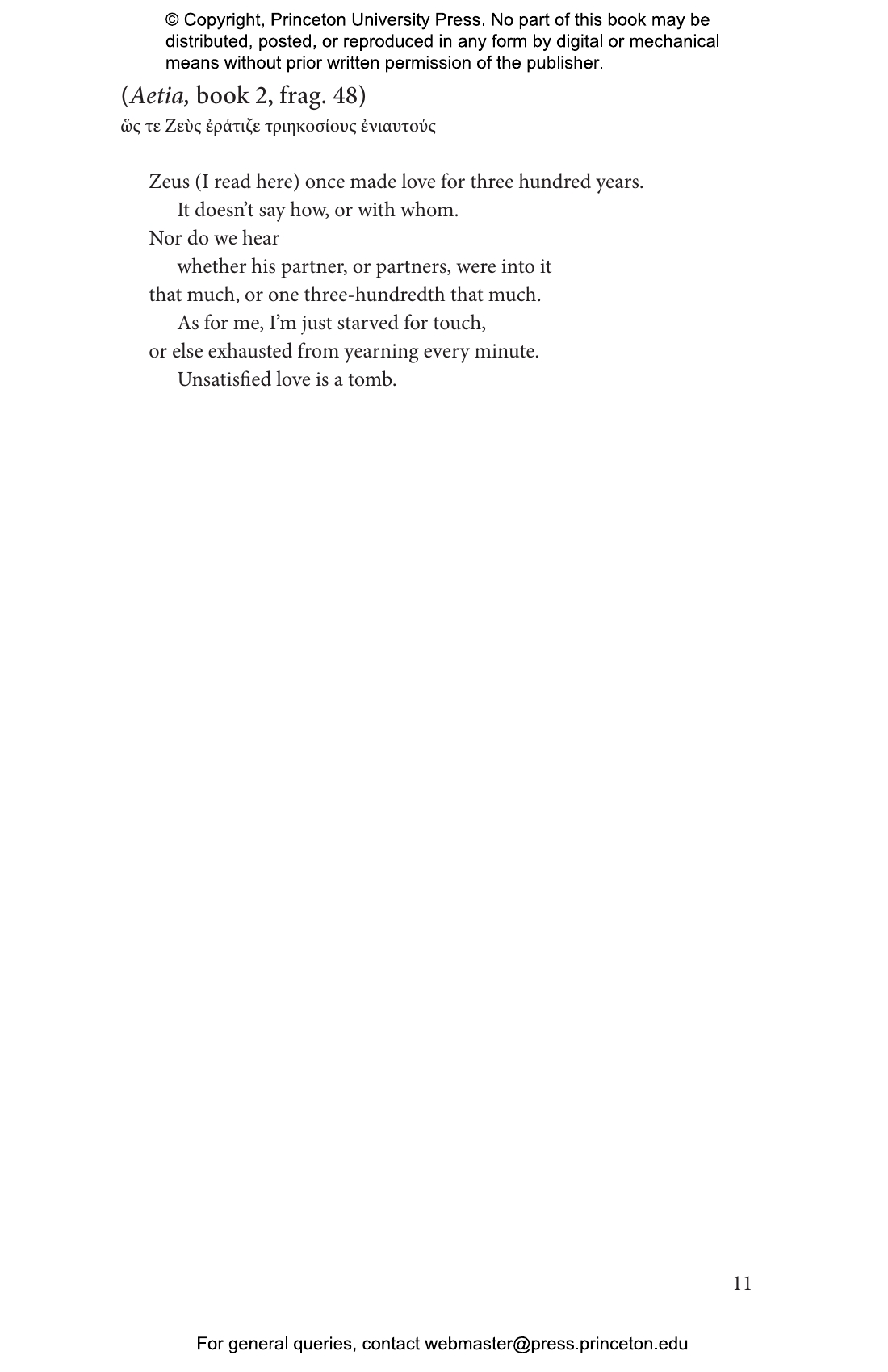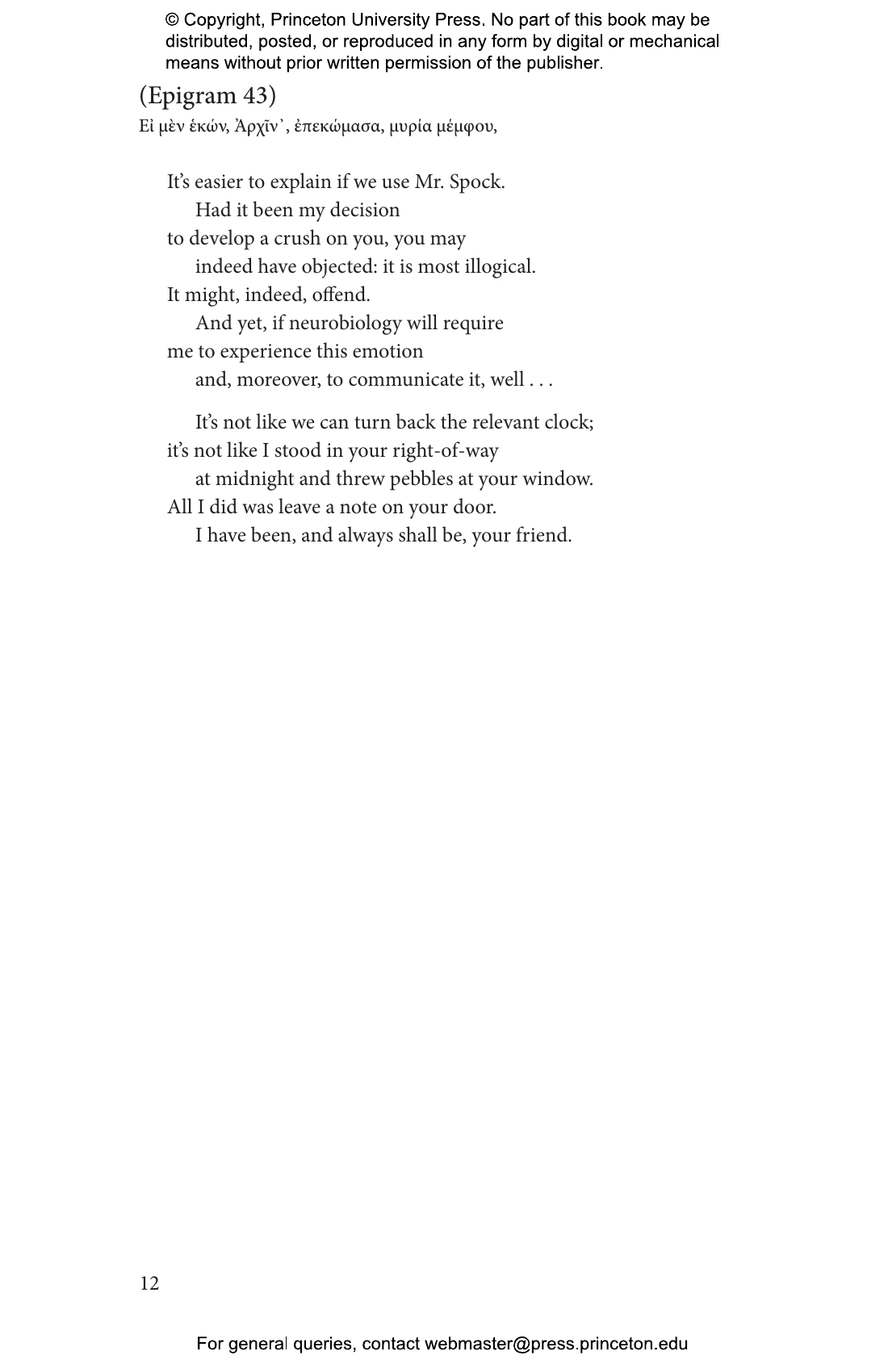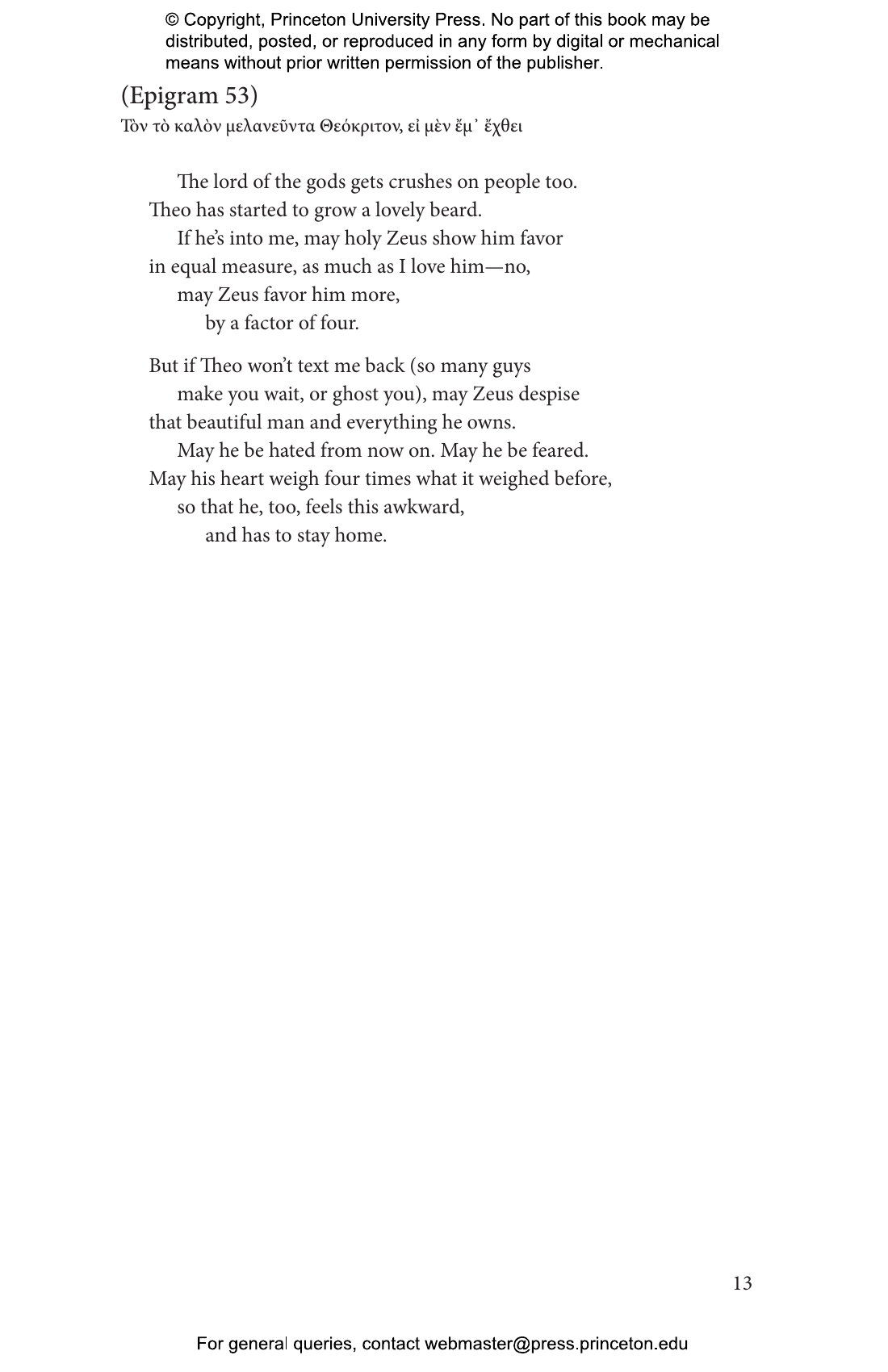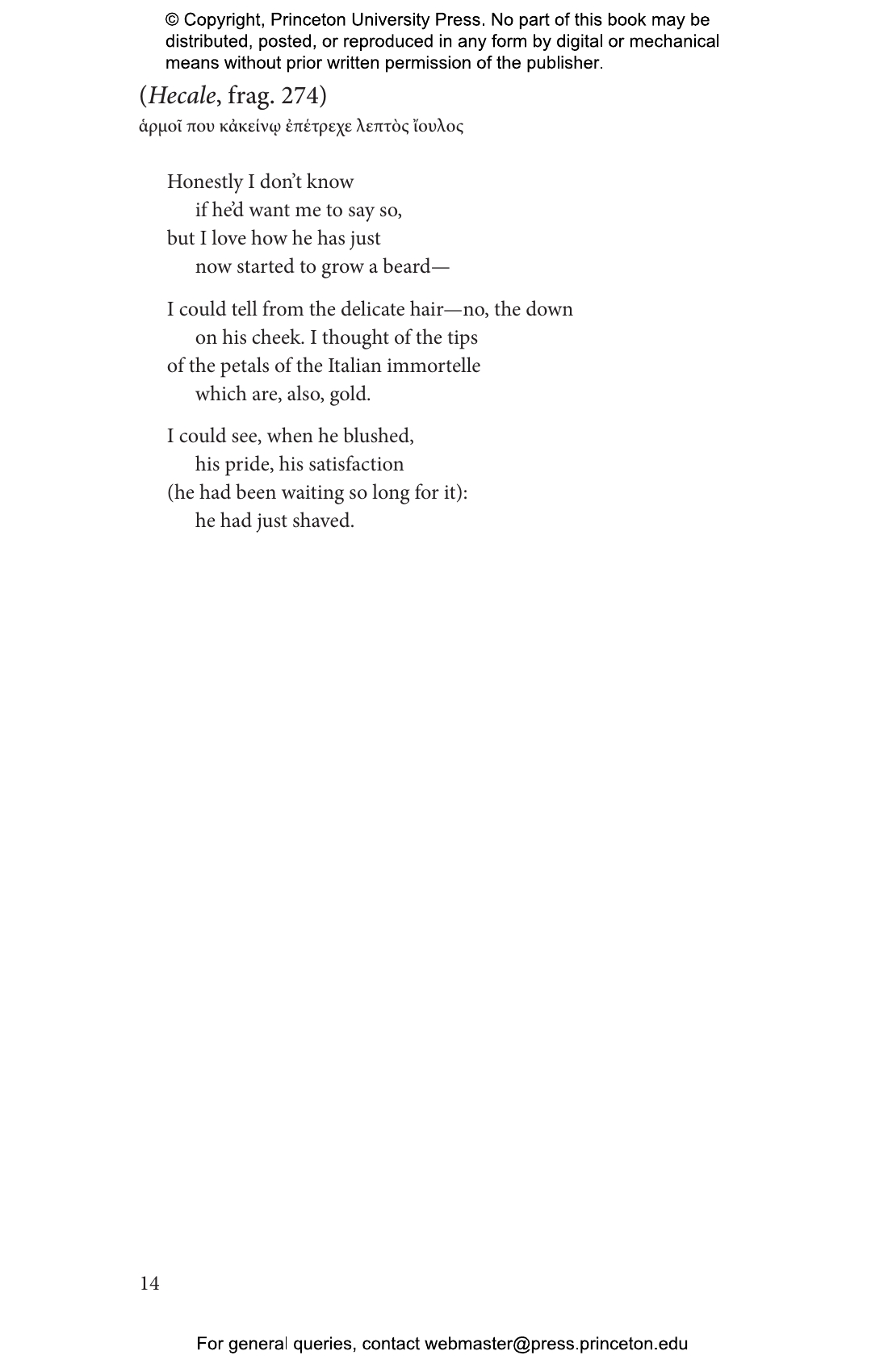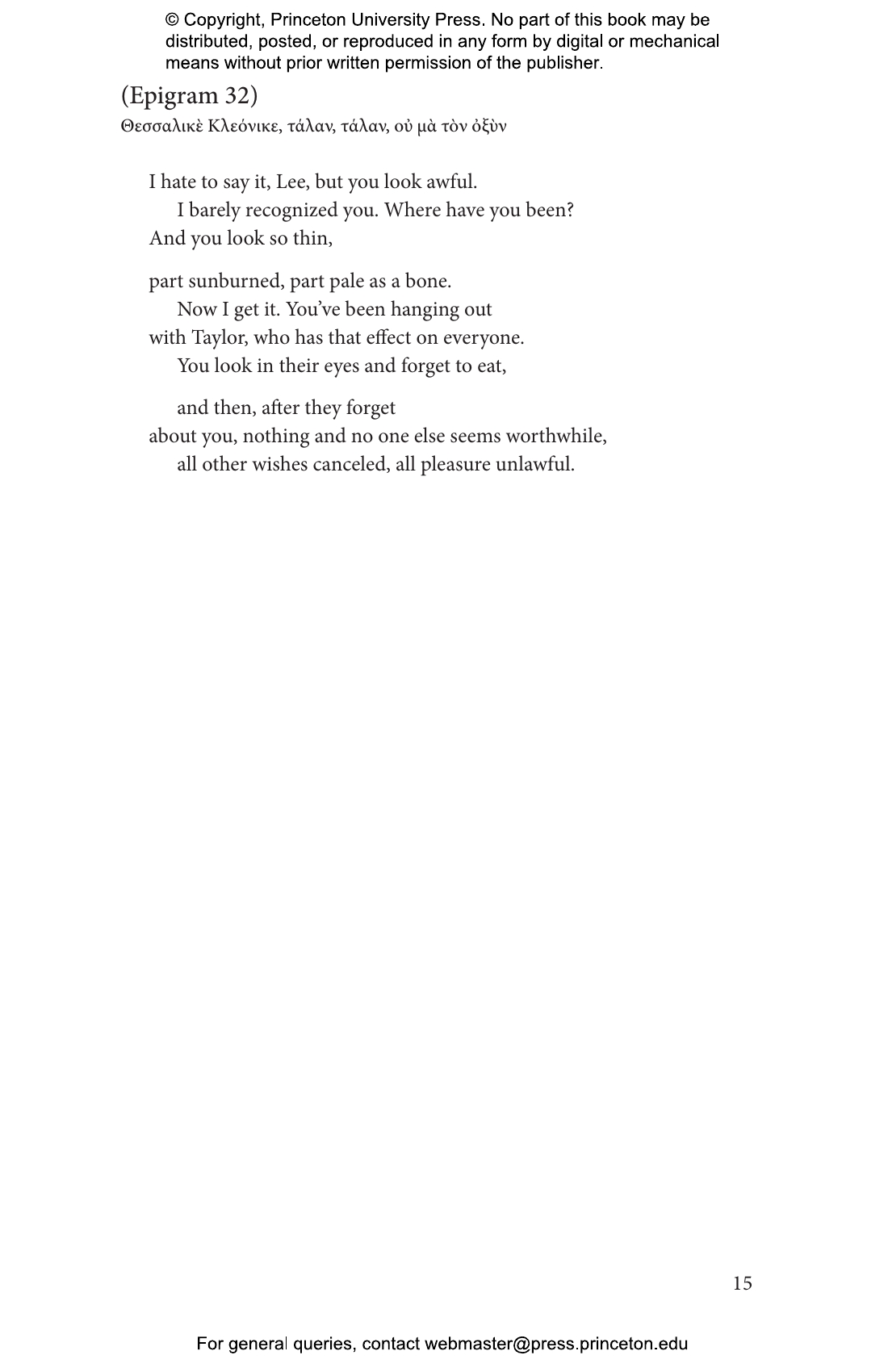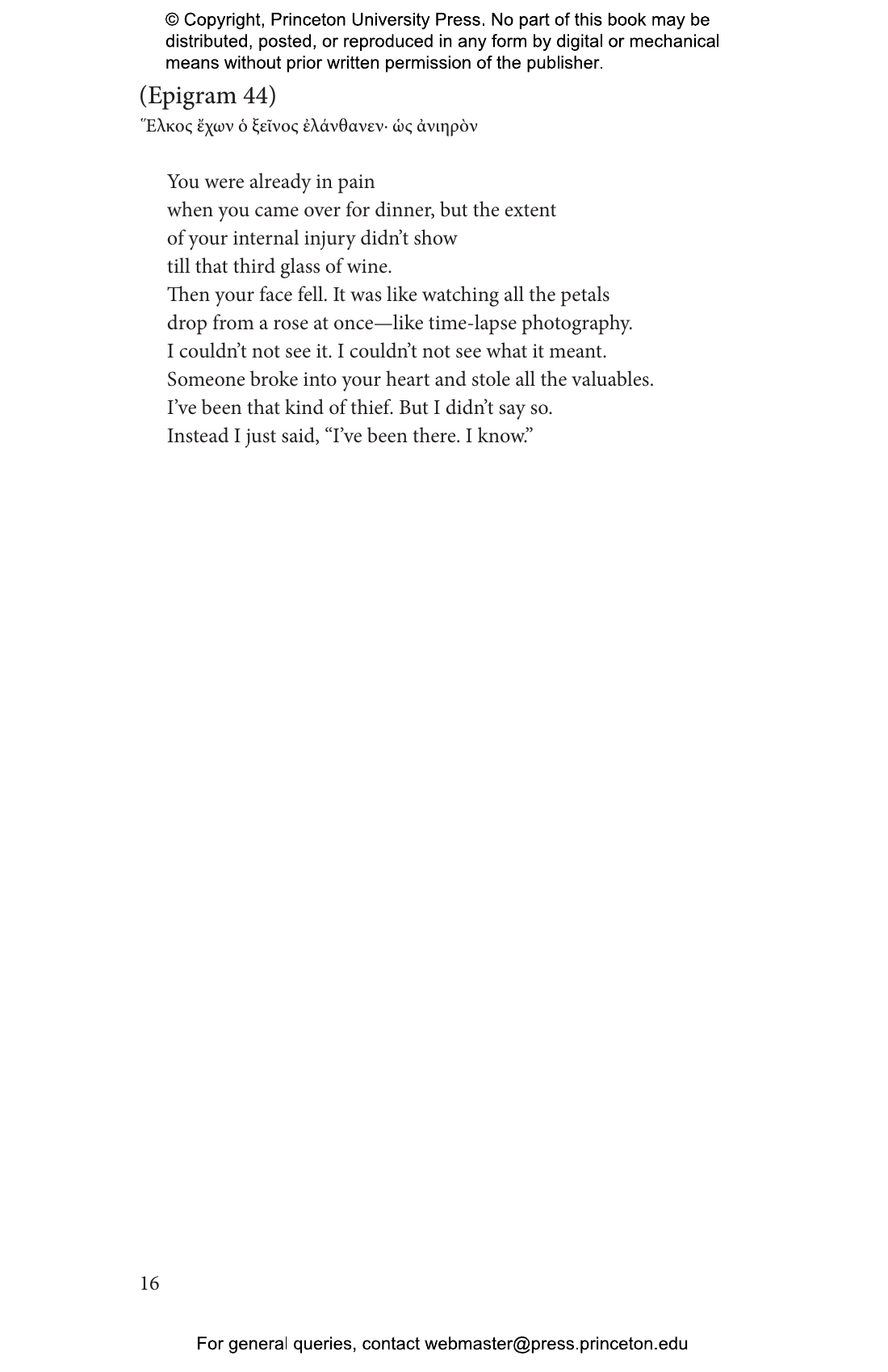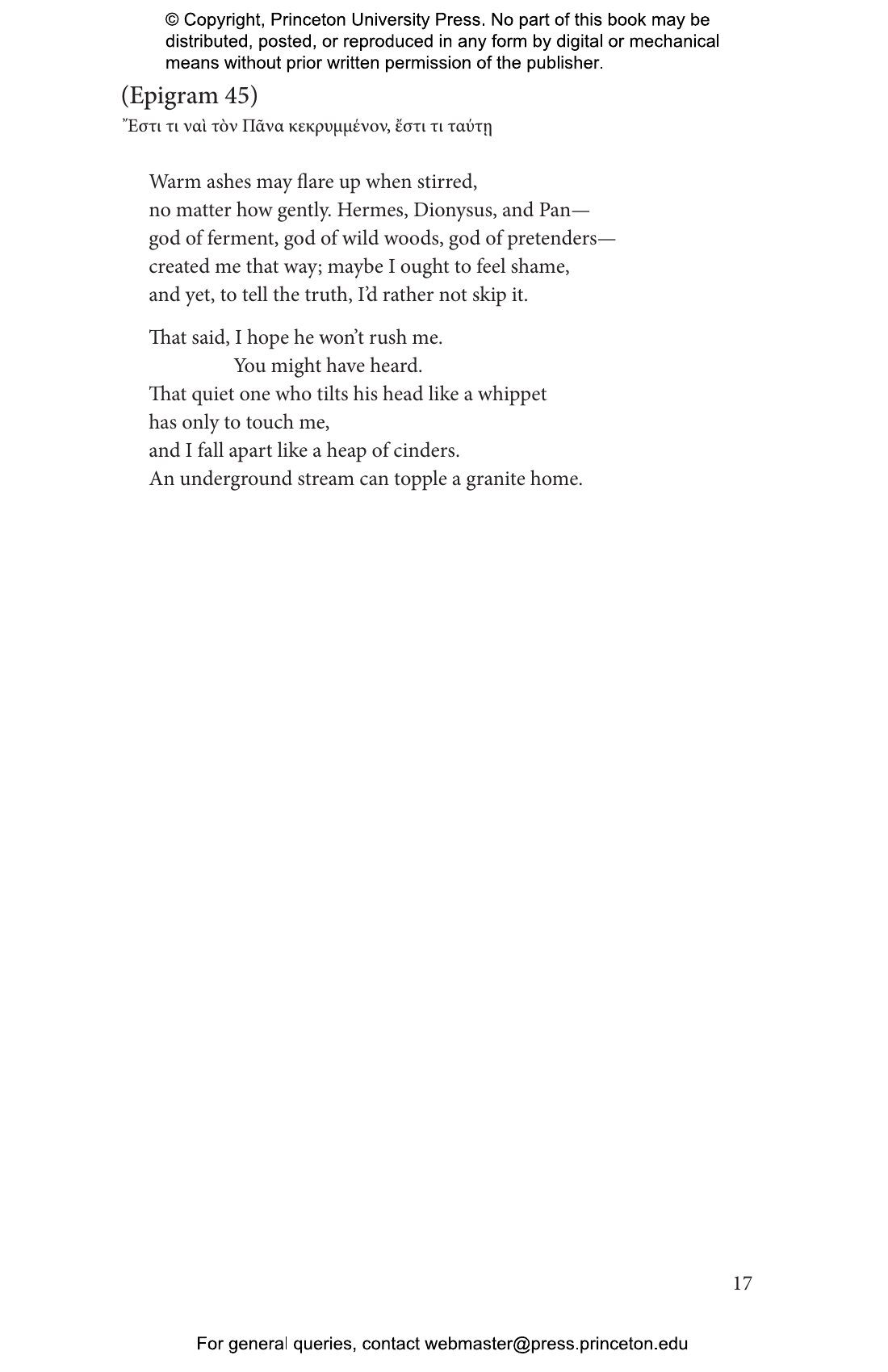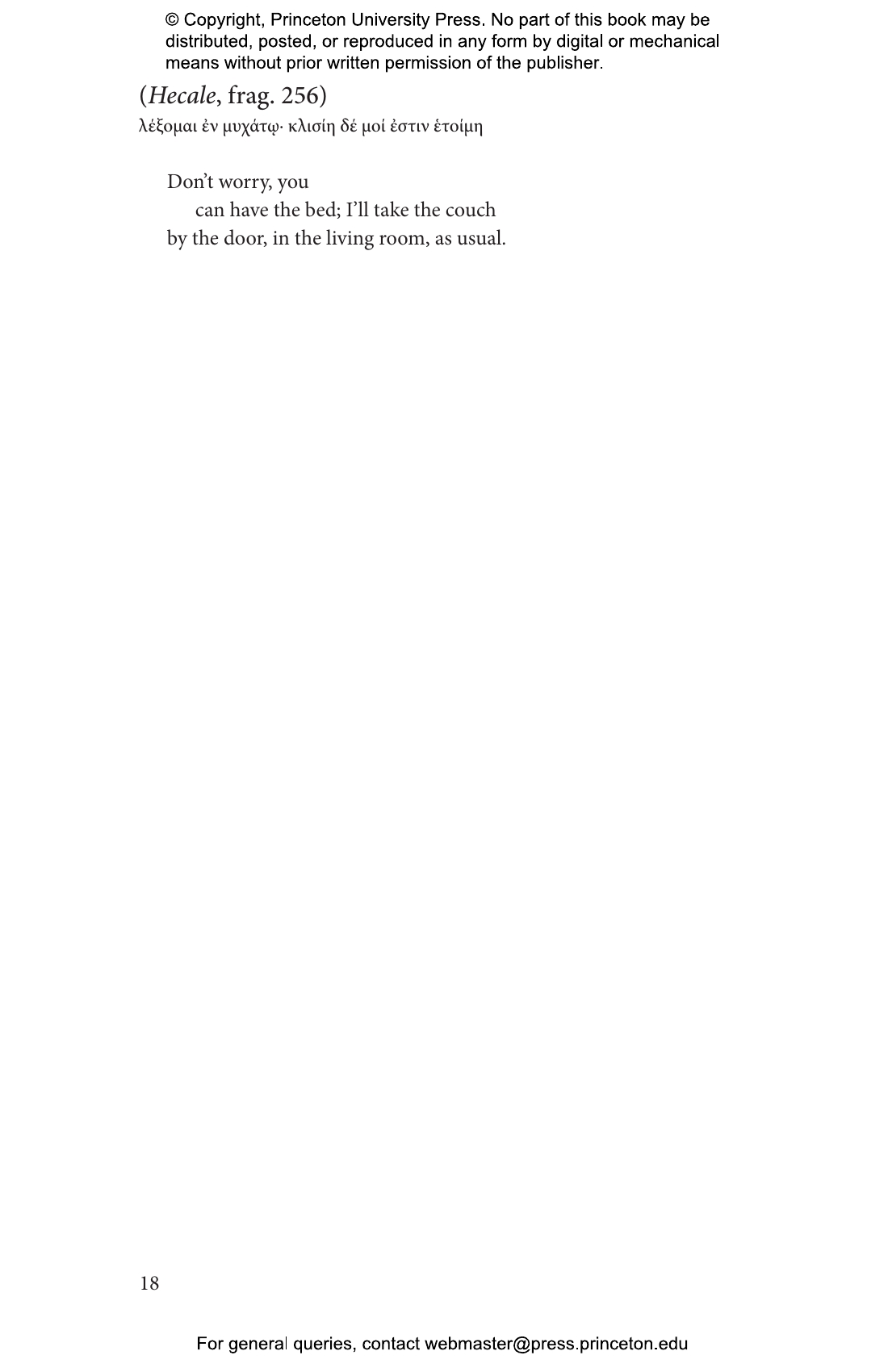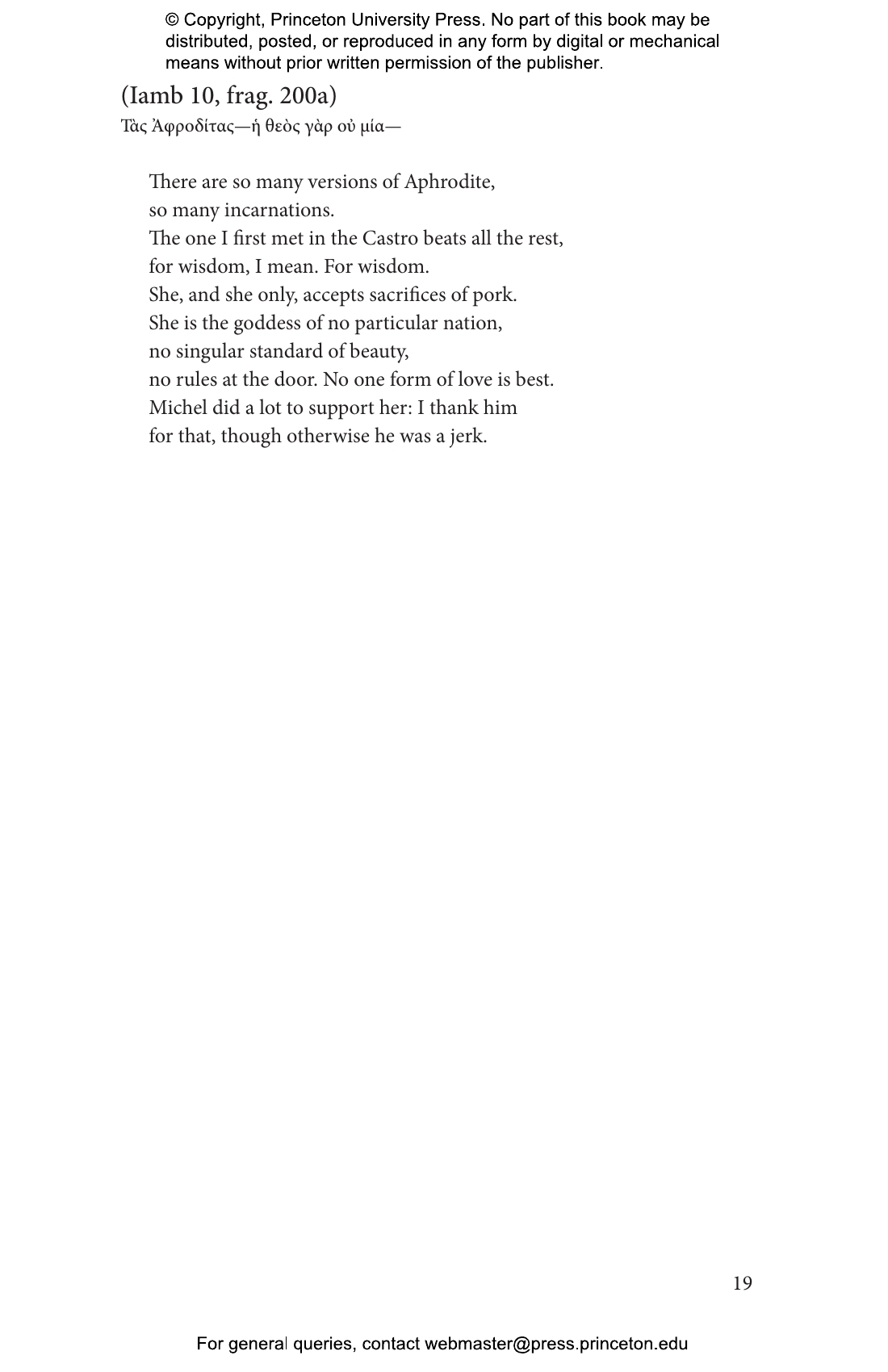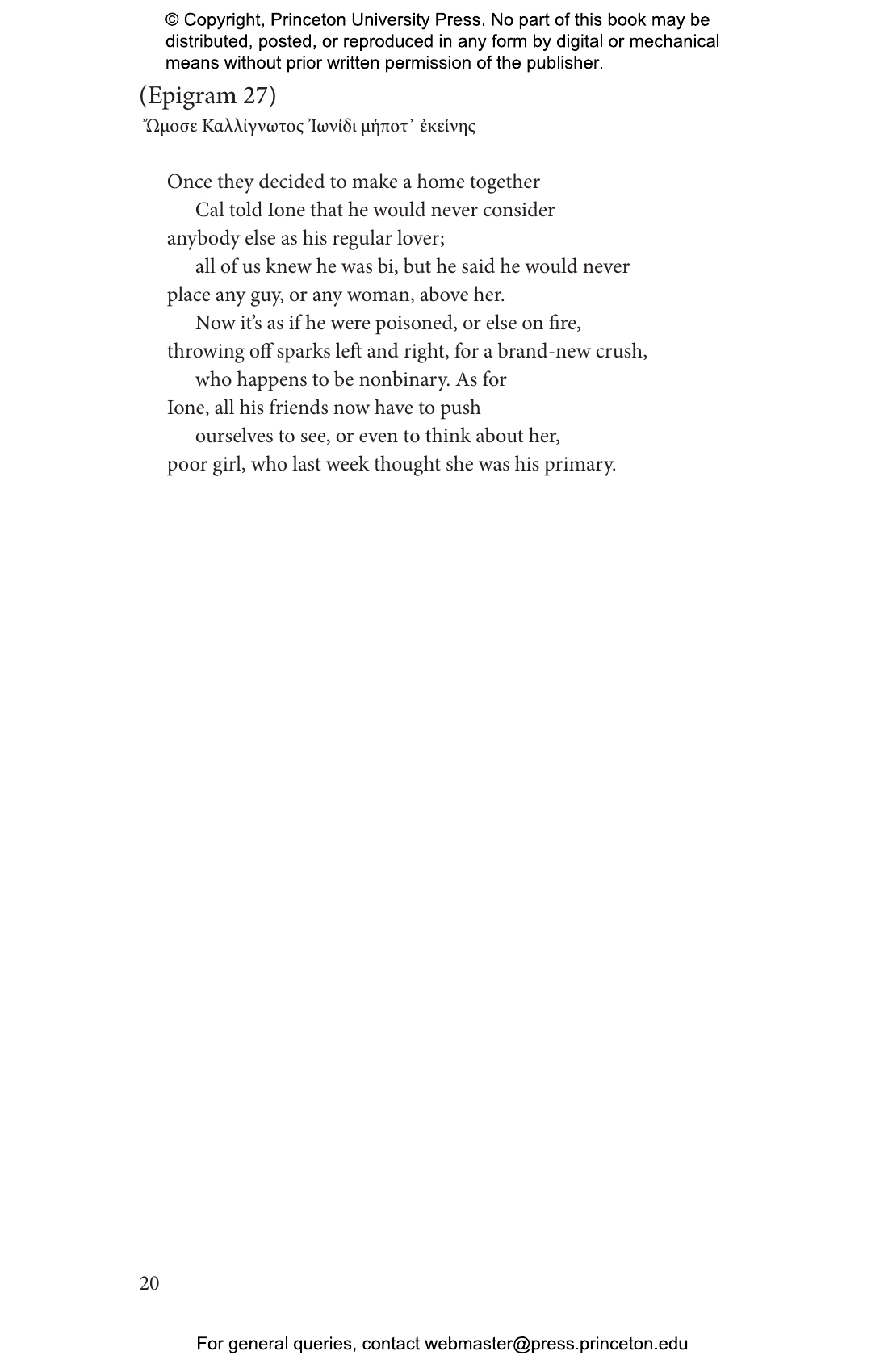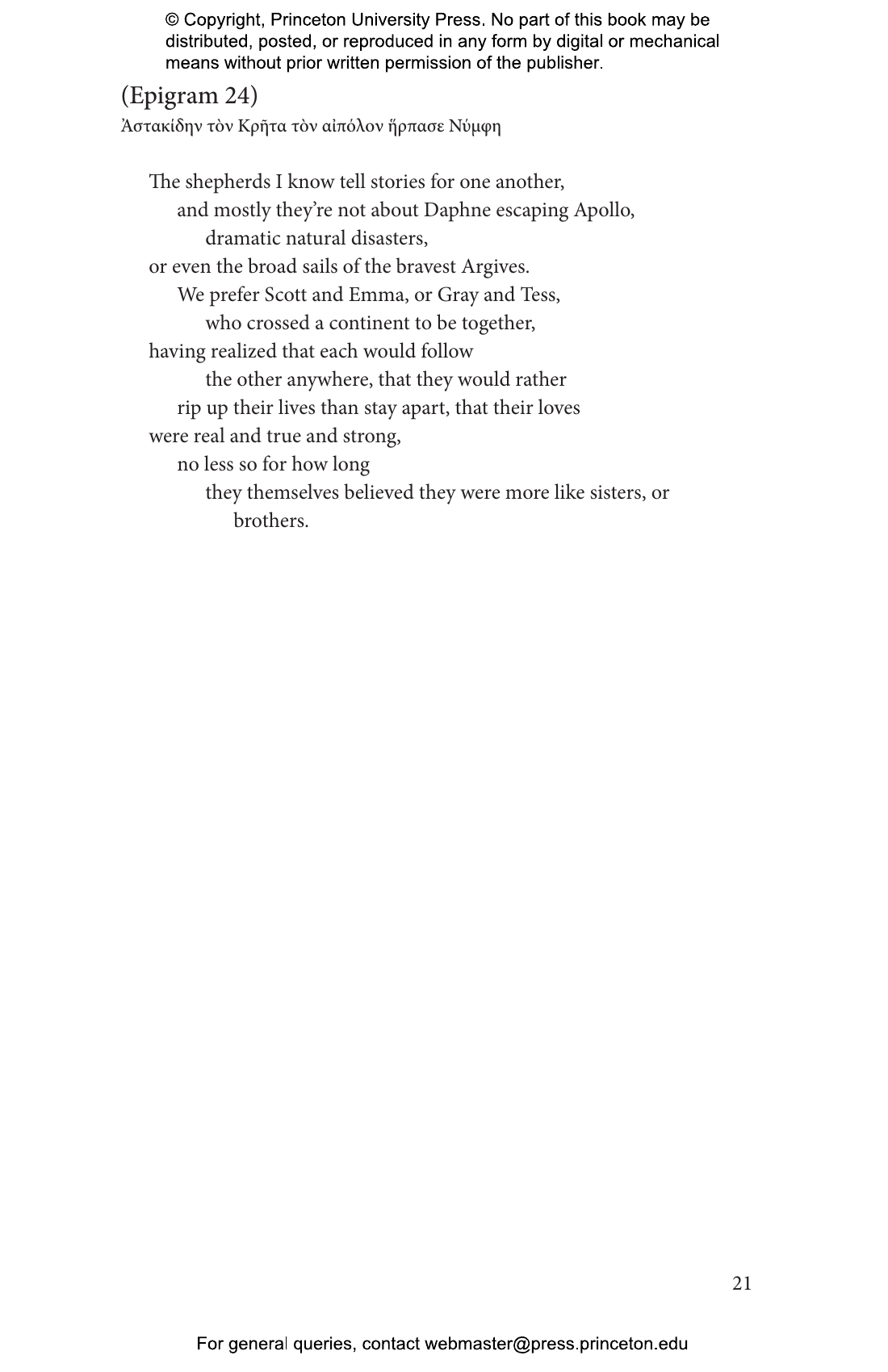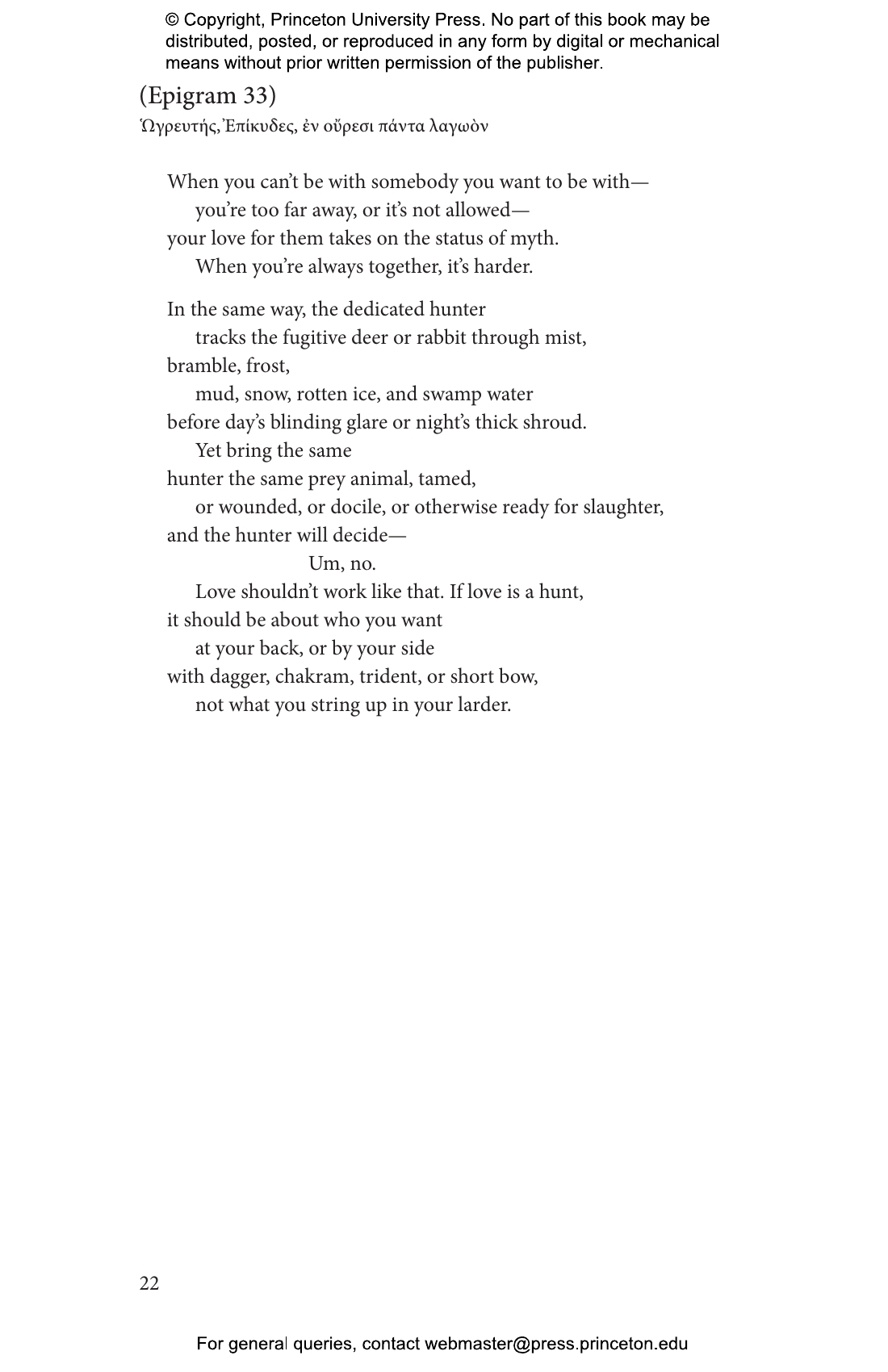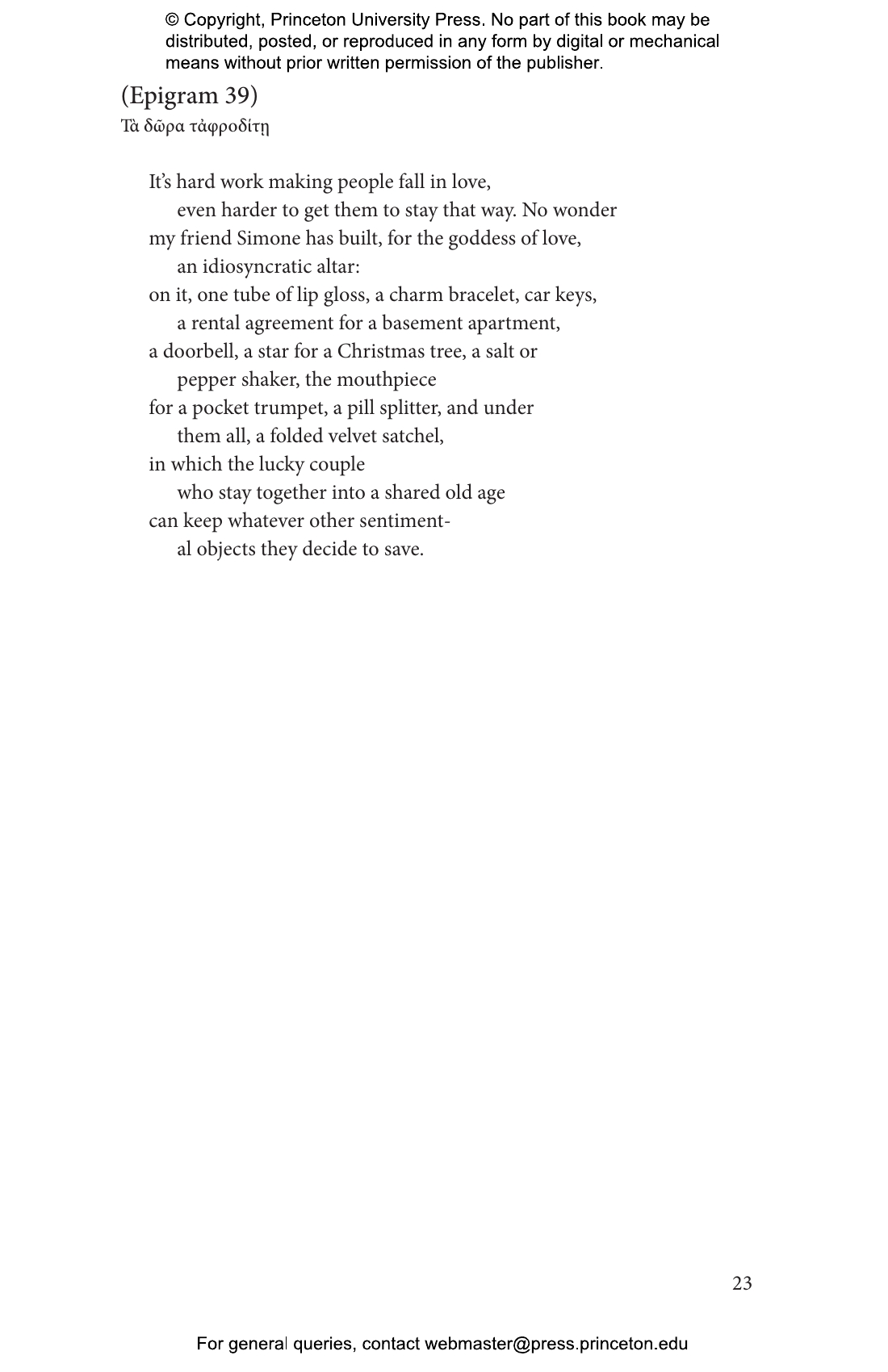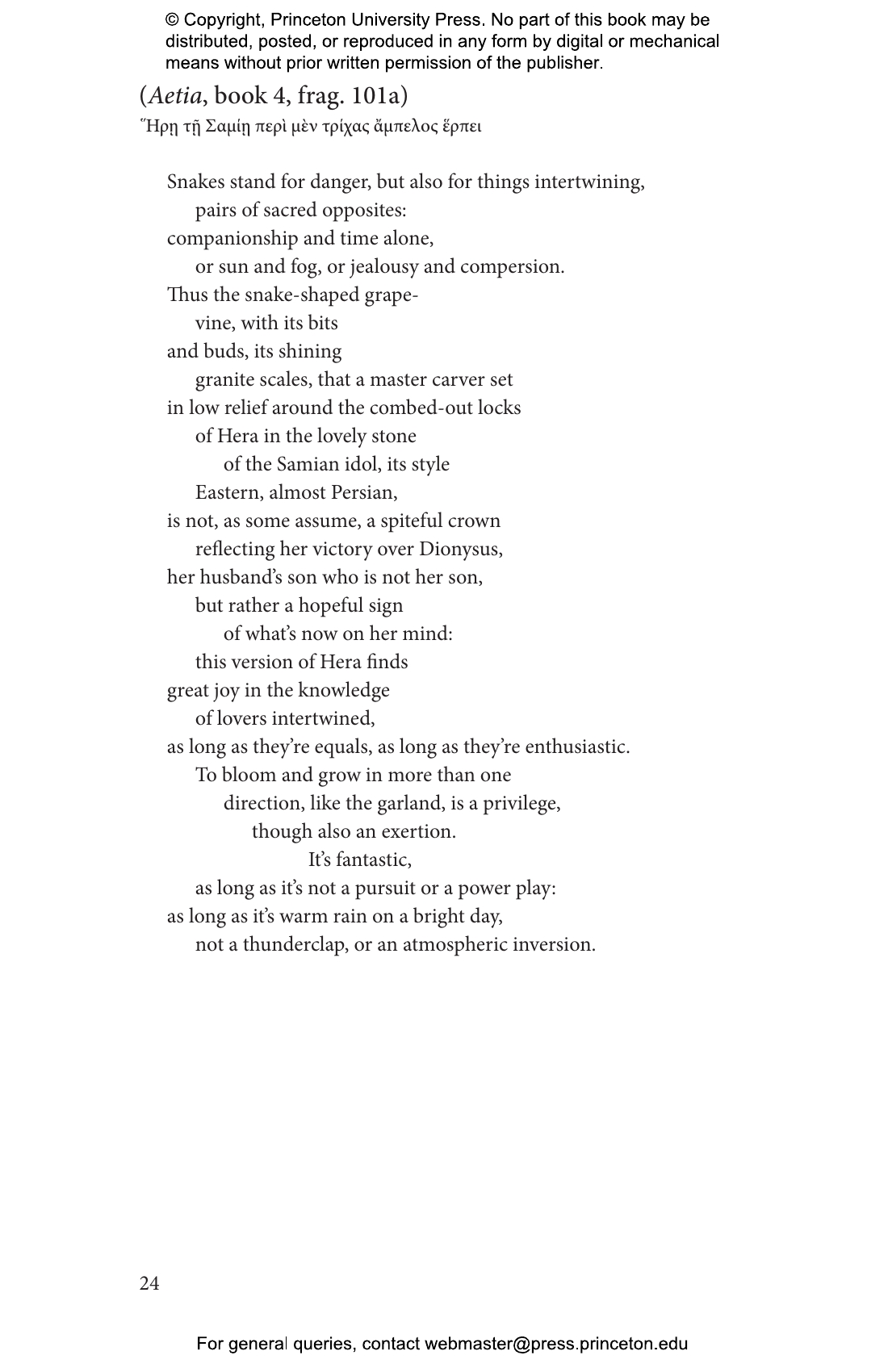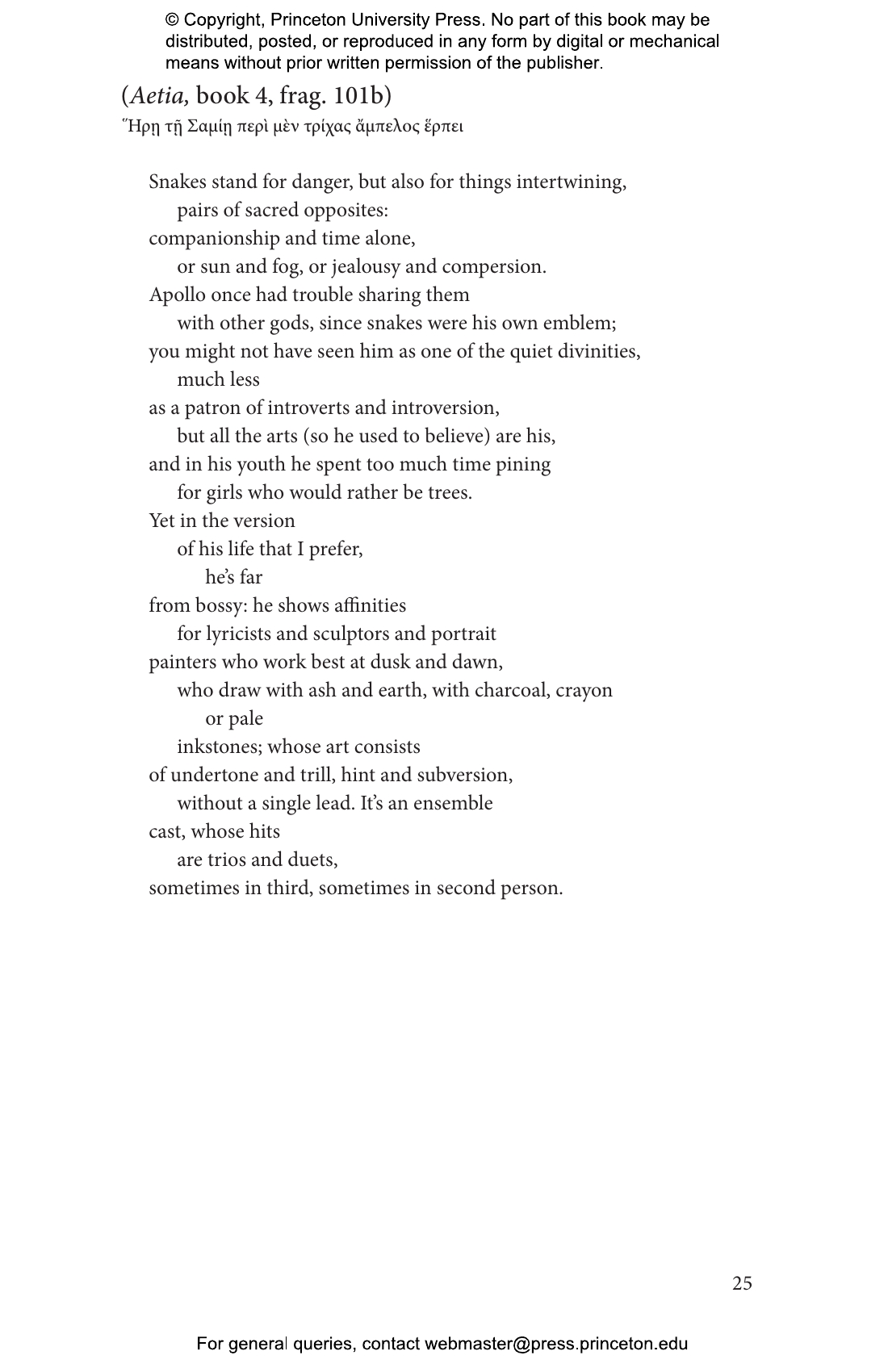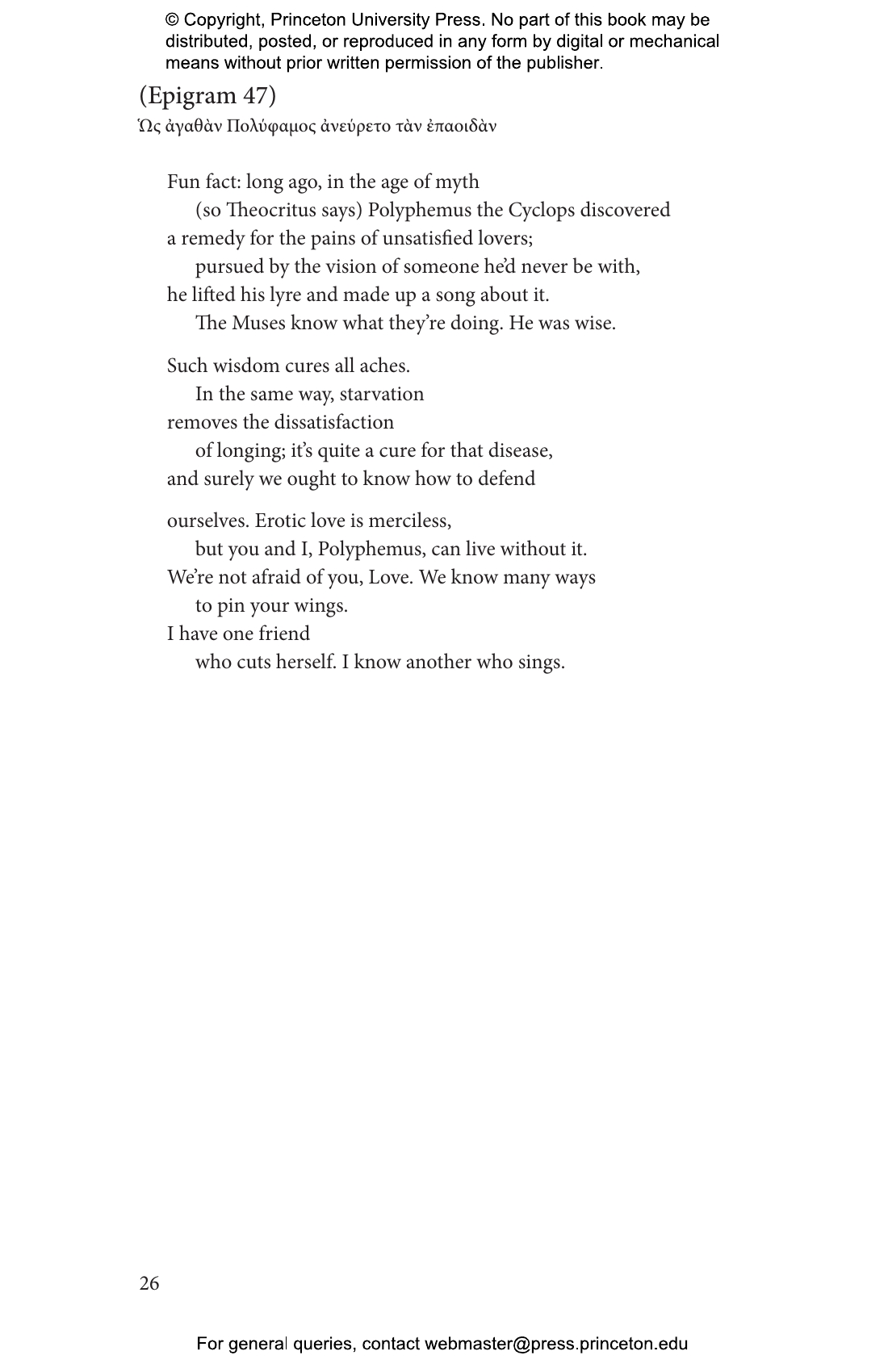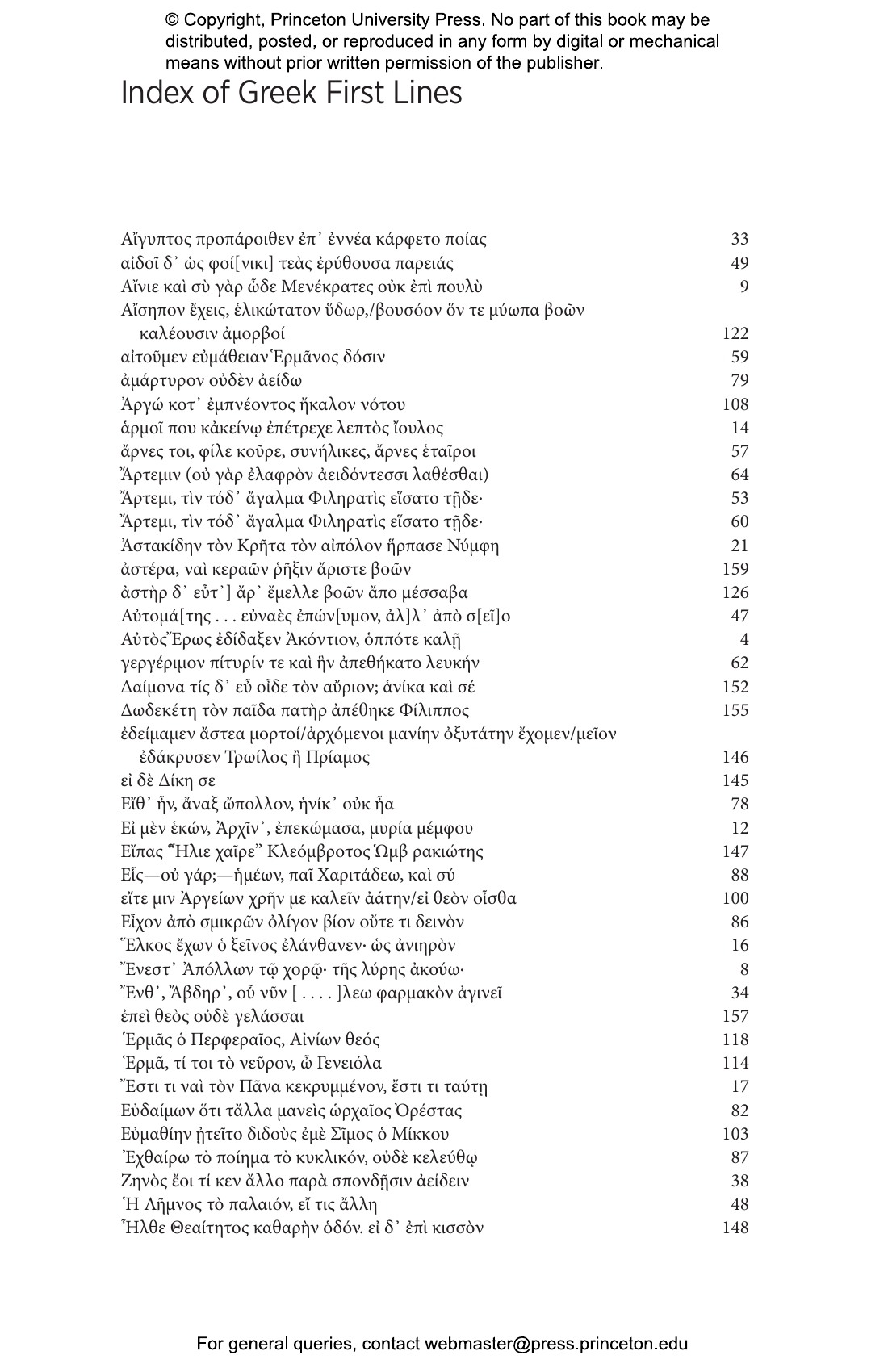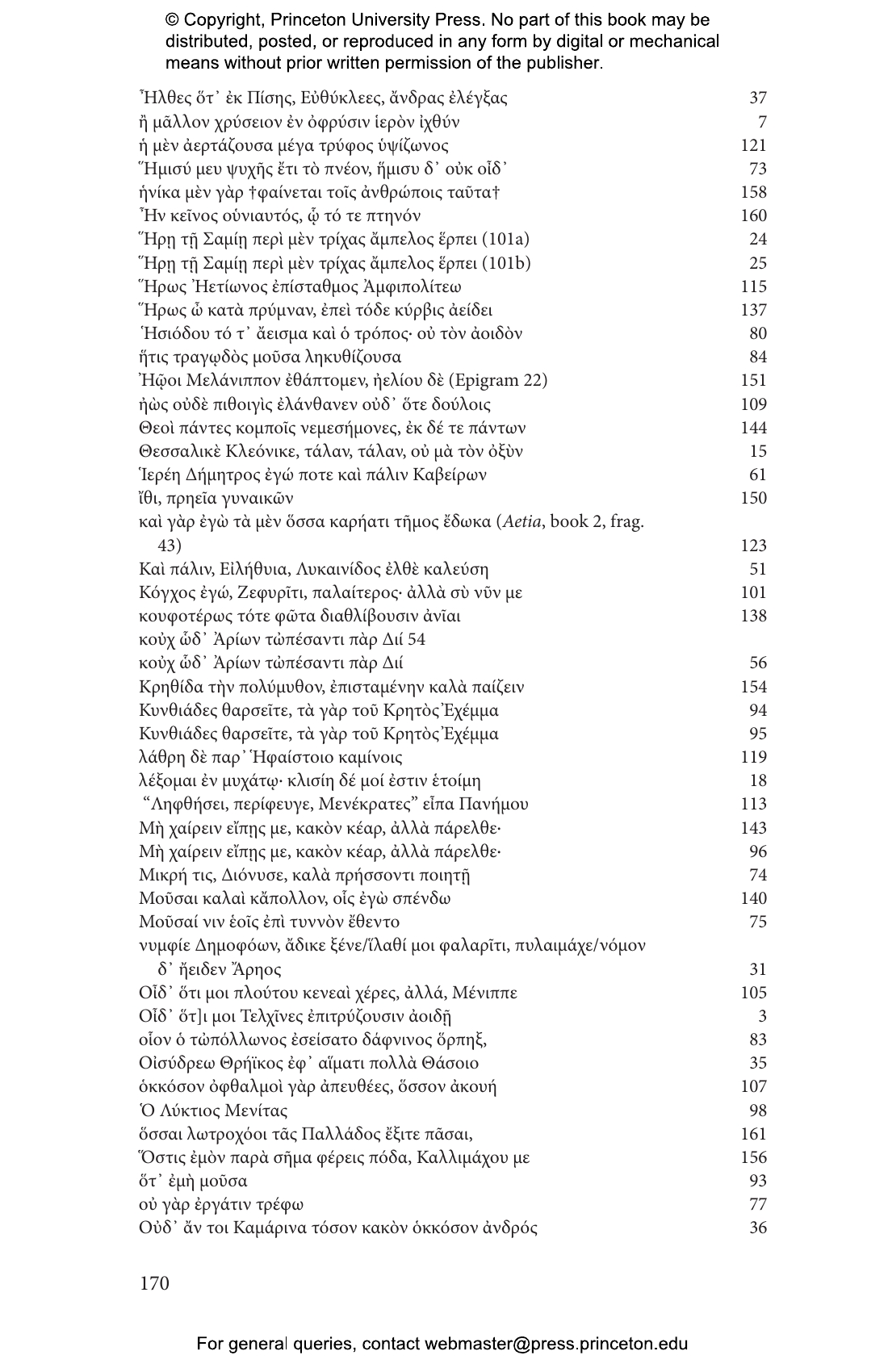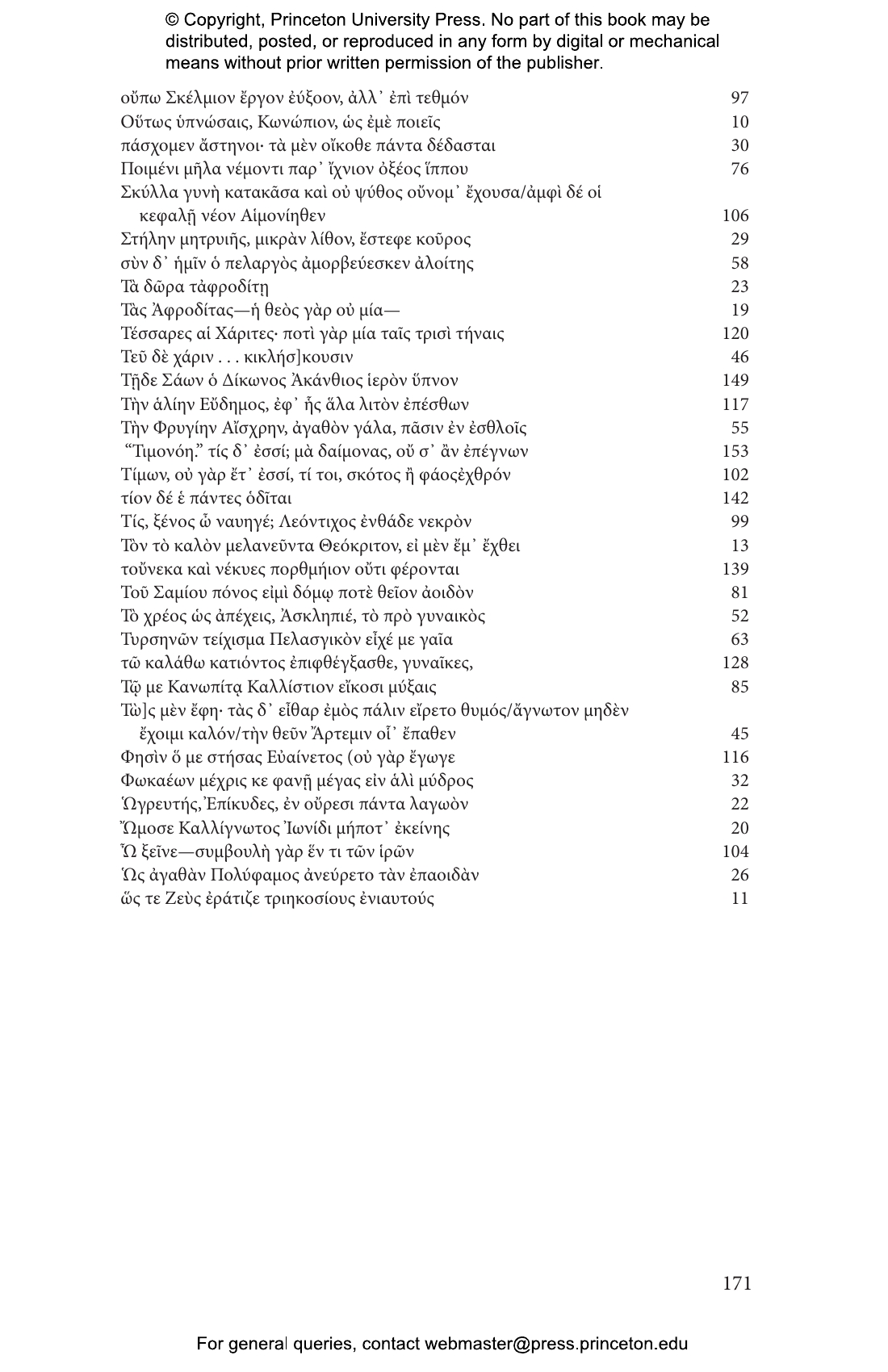Callimachus may be the best-kept secret in all of ancient poetry. Loved and admired by later Greeks and Romans, his funny, sexy, generous, thoughtful, learned, sometimes elaborate, and always articulate lyric poems, hymns, epigrams, and short stories in verse have gone without a contemporary poetic champion, until now. In After Callimachus, esteemed poet and critic Stephanie Burt’s attentive translations and inspired adaptations introduce the work, spirit, and letter of Callimachus to today’s poetry readers.
Skillfully combining intricate patterns of sound and classical precedent with the very modern concerns of sex, gender, love, death, and technology, these poems speak with a twenty-first-century voice, while also opening multiple gateways to ancient worlds. This Callimachus travels the Mediterranean, pays homage to Athena and Zeus, develops erotic fixations, practices funerary commemoration, and brings fresh gifts for the cult of Artemis. This reimagined poet also visits airports, uses Tumblr and Twitter, listens to pop music, and fights contemporary patriarchy. Burt bears careful fealty to Callimachus’s whole poems, even as she builds freely from some of the hundreds of surviving fragments. Here is an ancient Greek poet made fresh for our times. An informative foreword by classicist Mark Payne places Burt’s renderings of Callimachus in literary and historical context.
After Callimachus is at once a contribution to contemporary poetry and a new endeavor in the art of classical adaptation and translation.
Awards and Recognition
- Selected as One of the Top 10 Poetry Books of Spring 2020 by Publisher's Weekly
Stephanie Burt is a poet and critic and professor of English at Harvard University. Her books include Don’t Read Poetry, Advice from the Lights: Poems, and the essay collection Close Calls with Nonsense, which was a finalist for the National Book Critics Circle Award. Her work has appeared in such publications as the London Review of Books and the New York Times Book Review. She serves as poetry coeditor for the Nation. Mark Payne is professor of classics and comparative literature at the University of Chicago. He is the author of Theocritus and the Invention of Fiction, The Animal Part, and Hontology.
"The delightful fifth book from poet and critic Burt brings the ancient poet Callimachus, respected by later Greeks and Romans, to 21st-century audiences. Burt’s contemporary translations and adaptations musically and playfully build on Callimachus’s themes . . . Burt engages deeply and originally with Callimachus, and the result is a wonderfully rich collection that reveals how the past can cast new light on the present."—Publishers Weekly
"Burt’s translations and adaptations of the works of the ancient Greek poet Callimachus introduce new readers to the poet’s lyric writing, whose topics range from sex and gender to technology. Modern readers will find this voice stirring and relevant to the 21st century."—Publishers Weekly
"I've savored in spurts a couple of the many fine books of poems out this spring—among them, After Callimachus, by Stephanie Burt, which reimagines a campy version of a real but ancient Greek poet."—Tess Taylor, CNN.com
"With consummate skill and considerable powers of invention, Stephanie Burt has taken an imaginative leap which enables those who read her to gain some insight into an unfamiliar world and which, at the same time, may tell them much about their own. [After Callimachus is] a collection that deserves to be widely read."—David Cooke, The High Window
"After Callimachus is a substantial, fresh and entertaining collection, and a fine work of translation."—David Caddy, Tears in the Fence
"There is nothing like this book. No other poet that I know of has attempted to reenvision Callimachus in modern dress. With an urbane wit and a sense of fun, enlivened with sensibilities from our own time, Burt’s reimagined re-creations of Callimachus have a wonderful freshness about them."—Stephen Scully, Boston University
Praise for Stephanie Burt's previous books"Brilliant, charming, engaging, and highly original."—Harvard Review
"Engaging, artful . . . Burt’s wit and powers of invention are on full display."—Washington Post
"Burt mines a nearly limitless store of empathy, lending voices to living things and inanimate objects alike. . . . Burt’s poems are never less than compassionate."―Library Journal, starred review
